The UNESCO Courier

Is the space effort a waste of money?

Colossal strides in civilization in the past have followed each major advance in man's observation of the skies. Astronomical discoveries, time after time, have influenced and, in some cases, shifted the very course of history.
By Gene Gregory
As the Apollo 11 and 12 spacecraft raced toward their rendezvous with the moon last July and last November, these most ambitious of man's ventures were the focus of a sharp and lively debate back on earth about the real meaning and value of space exploration.
Twelve years had passed since the Soviet Union launched the space age by firing Sputnik I into earth orbit on October 4, 1957. The United States had spent some $44 thousand million on space programmes, $24 thousand million on the Apollo project alone. Hundreds of thousands of top scientists and technicians had been striving together in by far the largest team of specialists ever mobilized in a single undertaking.
Yet the basic question was still being asked: "Is this trip really necessary?"
Was the moon landing a pointless "stunt", however adroitly executed, or a breath-taking demonstration of man's unlimited capabilities? Would the billions allocated for space be better spent on solving pressing problems here on earth? What, in short, is there in all this running around in space for those of us who remain earthbound mortals?
Arnold J. Toynbee, the esteemed British historian, expressed the concern of many serious-minded sceptics for whom the moon landing symbolized a yawning gap between technology and morals.
"In a sense," Toynbee remonstrated, "going to the moon is like building the pyramids or Louis XIV's palace at Versailles. It's rather scandalous, when human beings are going short of necessities, to do this. If we're clever enough to reach the moon, don't we feel rather foolish in our mismanagement of human affairs?"
But others contend that there is money enough for the moon and tasks on earth, too. And some go further to point out that the conquest of space has done much, through the development of new ideas, new attitudes, new techniques and new structures for the management of large-scale undertakings, to prepare man for a major offensive against the unsolved social and material problems at home.
"If you look at the thousands of years of civilization," Sir Bernard Lovell, director of Britain's Jodrell Bank Observatory reminds us, "you will find that only those communities that have been prepared to struggle with the nearly insoluble problems at the limits of their technical capacities those are the only communities, the only times, that civilization has advanced. The Roman Empire decayed when ¡t ceased to be progressive in this sense, and there are other examples. To a certain extent, you see the beginnings of it in the United Kingdom today, but fortunately not in the United States and certainly not in the Soviet Union."
Queen Isabella of Spain was confronted with something of the same sort of question nearly five centuries ago when she sold her jewels to assemble the resources necessary to finance the trip to the Indies of Christopher Columbus and his crew.
Her prime motives may well have been the glory and riches she expected to accrue to Spain. But the great results of this historical venture were not the spice and gold it brought to Spanish coffers, nor the vast territorial acquisitions which gave Spain dominion over the first global empire in history.
Far more important, the Columbian explorations marked the beginning of a major new cycle in the development of the world, enhancing man's mastery of the seas and bringing together in one great community, however unhappily, the entire human race.
It is not too much to contemplate that similar experiences may be awaiting us as we embark on the contemporary venture into unknown space. This is not simply because outer space provides a new dimension to potentially new resources, nor because the possibility of finding life on other planets has suddenly become much more real. Of even greater importance is the vast accumulation of new technology and new techniques resulting from the first decade of space exploration. Not unnaturally, the sheer spectacular quality of the moon landing tended to focus the world's attention on the heroic aspects of the achievement.
Somehow, the casting of the Apollo 11 and 12 voyages on millions of television sets around the world gave it the character of a sports event. Focus was on the astronauts, champions of a new interplanetary Olympiad, and on the faultless performance of the spacecraft. In the process, the real significance of space exploration became obscure.
If the experience of the past three or four thousand years has any value, it tells us that in freeing himself from the millennial confinement of the earth's gravitation and its atmosphere, man has added a vast new dimension to his environment and to his character. In broadening his horizons, he has in a qualitative sense altered his very being and completely changed his relationship to the rest of nature, and this in turn presages sweeping changes in every field of human activity.
Colossal strides in civilization in the past have followed each major advance in man's observation of the skies. Astronomical discoveries, time after time, have influenced and, in some cases, shifted the very course of history.
Now, the impact of space exploration the most momentous of all human adventures promises to usher in a new stage of civilization the broad outlines of which remain undefinable, if for no other reason than that the exploration has only begun. The potential of the universe for mankind is as completely unknown today as was that of the New World after the return of Columbus to Spain.
As Margaret Mead, the American anthropologist, has put it: "Once you raise the question that other land than this earth is possible to live on, that other places are possible places to found colonies, or that there may be other living creatures somewhere, you have changed the whole place of man in the universe. You've altered everything. This involves a considerable reduction of human arrogance and a tremendous magnification of human possibilities."
Just as the age of earth exploration completely transformed the political matrix around the globe, the space age will radically. Alter the present global political constellation and institutions. The nation state, already ill-suited to human needs in the last half of the twentieth century, can hardly be expected to effectively serve man's goals in space.
The on-again off-again trip to Mars, originally scheduled for the 1970s, will very likely be too expensive for either the United States or the Soviet Union to undertake alone. By combining in this and other projects in the conquest of space, it is possible to co-operate where prejudices and conflicting interests are least involved. In this age of global problems, the necessity of co-operation in space as human beings with predominantly common interests cannot but have a feedback on earth. If and when space exploration becomes more than a marginal activity, its higher priority is bound to give new stimulus to international joint ventures in space.
Already COMSAT (Communications Satellite Corporation) and INTELSAT (the international space communications organization of 70 member countries) have established a pattern for international public utilities in space communications. American and Soviet rockets are launching European, Australian and Japanese satellites into space. And some 40 tracking stations around the globe, involving varying degrees of international co-operation, participated in the Apollo project.
But if no one knows where this new adventure in space will eventually take us, what new worlds will be discovered what new horizons will open as man colonizes the moon or other planets, or what advantages may be found in manufacturing instruments and equipment in the vacuum of outer space, the first decade of the Space Age has given us a foretaste of what is in store for the future.
Since 1967 hardly a person on earth has not been directly or indirectly effected in one way or another by the results of the space exploration. Liberated from the forces that have kept us earthbound throughout recorded history, we now have capabilities (intellectual and material) that are immeasurably greater than ever before. These new capabilities open unlimited opportunities for the development of human faculties and the satisfaction of human needs.
A whole galaxy of earth satellites is now providing global services which have already brought vast improvements to communications, weather prediction, geology and geodetics, navigation and oceanography. These and other vital tools for the enhancement of man's control over his environment are available not only to the advanced industrial countries that have developed them, but have had immediate benefits for all countries around the globe providing developing countries with tremendous new capabilities for more rapid economic and social advance.
New technologies products, materials, processes, manufacturing techniques, operating procedures, and new standards born of space requirements are being transferred from their original space application to industry, commerce, education and public health, replacing products or practices currently in use to provide those which will better fill the vast variety of human needs.
But, most important, effective techniques and structures have been developed for the "forcing" of technology transfer, and private industry, universities and governments now have at their disposal vast computerized data banks of knowledge and data on virtually every field of the physical and social sciences, technology and the humanities.
But an even more important aspect of the Space Revolution is the last one: techniques for directing massive projects undertaken by thousands of minds in a close-knit, synergistic combination of government, universities and industry. Taken together these techniques are potentially the most powerful management tool in man's history, changing the way civil servants, scientists and managers approach virtually every task they undertake.
About the authors
U.S. engineer Gene Gregory is also a writer specializing in economic and technological questions.

Other recent articles
You are using an outdated browser. Upgrade your browser today or install Google Chrome Frame to better experience this site.
Space exploration pros and cons: Are space programs a waste of money?

Source: Image : ESA/Rosetta/MPS for OSIRIS Team MPS/UPD/LAM/IAA/SSO/INTA/UPM/DASP/IDA
Space exploration is a hugely expensive affair. Should we spend money on space exploration when we have so many problems on planet Earth? We debate the pros and cons of space exploration and the reasons for investing in space agencies and programs.
Should we spend money on space exploration?
The launch of SpaceX's Falcon Heavy rocket into has brought back media attention to space exploration . Elton Musk's private aerospace company is in the process of becoming a major player and a partner for many space programs. However, most of the efforts to discover whats out still depend mostly on public funding.
Space exploration is costly, and many argue that in times of belt-tightening, we should focus on solving problems here on Earth, especially since the knowledge gained from space exploration has few immediate benefits. On the other hand, pronponents of space exploration argue that the knowledge to be gained is invaluable, and that it is in the very nature of humankind to explore. In addition, proponents of these programs argue that they have had significant benefits and resulted in the discovery or popularisation of many useful new technologies . Furthermore, space exploration could be the only way to escape human extinction in case living conditions become unsustainable on Earth.
Today there are six big government space agencies with the capacity to create, launch and recover satellites: the National Aeronautics and Space Administration ( NASA ), Russian Federal Space Agency ( Roscosmos or RFSA),the China National Space Administration ( CNSA ), the Indian Space Research Organisation ( ISRO ), the Japan Aerospace Exploration Agency ( JAXA ) and the European Space Agency ( ESA ) which integrates several European space agencies. Among them only NASA, ROSCOSMOS and CNSA have full capacity for human spaceflights and lunar soft-landing. In addtition to these there are many other government space agencies with variable capabilities, most of them have only the capacity to operate satellites, a few of them also have launch capabilities and can operate extraterrestrial probes. Some of these space agencies are competing to be the first to send humans to Mars and investigating if there is intelligent life on other planets .
These space programs and agencies are very costly. It is estimated that the total annual budget of space agencies is $41.8 billion. Among them the highest budgets correspond to:
- NASA (USA, $19.3 billion)
- Roscosmos (Russia, $5.6 billion)
- ESA (Europe, $5.5 billion)
- CNES (France, $2.5 billion)
- JAXA (Japan, $2.5 billion)
- DLR (Germany, $2 billion)
- ASI (Italy, $1.8 billion)
- CNSA (China, $1.8 billion)
- ISRO (India, $1.2 billion)
Are all these costs justfified? Are there better ways to spend public funding? Should we mainly rely on private investors such as Elton Musk to promote space expliration? Will capitalistic incentives lead the way towards space exploration? In order to help make up your mind we outline next the most important benefits and problems of space exploration.
Space exploration pros and cons
- Knowledge generation. Thanks to space exploration programs we are discovering many things that help us understand the universe. For instance, learning about planets, comets, stars, etc. can help us find solutions for some of the problems our civilization will face, such as overopulation and the need to colonize other planets.
- Exploration and discovery are beneficial. Humans have always engaged in exploration to satisfy their sense of curiosity and look for opportunities. During the Age of Discoveries in the 15th and 16th centuries, countries such as Spain and Portugal heavily invested in expeditions, but thanks to them they became super-powers and gained many riches. Later, during the second age of explorations in the 18th and 19th century, the discoveries of pioneers such as Captain Cook or Livingstone heavily contributed to scientific discovery.
- Artificial satellites are crucial tools in modern society. For instance they are used for defence purposes and to fight against terrorism. Satellites help us also monitor the effects of global warming and detect wildfires. Space agencies are necessary to operate satellites.
- Scientific advancement and by-products. Space exploration programs help introduce and test new technologies. Much of the research carried out to find solutions for space travel have applications elsewhere. For instance NASA research has contributed to develop velcro, fire-resistant materials, medical devices to relieve muscle and joint pain, new precise thermometers, artificial limbs, new air conditioning systems, land mine removal systems, improved radial tires, etc.
- Space race may save humanity. Life on Earth may be threatened by climate change, pollution, depletion of resources, infectious diseases or nuclear war. Further, space exploration is necessary to find another planet on which humans could pursue their lives. Space programs help also find solutions to adapt human lives to the space or other planets.
- Space industry jobs. The space industry employs directly about 120,000 people in the OECD countries and 250,000 in Russia.
- Few direct benefits to space exploration . True, space technology has helped us launch satellites and introduce many useful products, but do we need to keep pushing forward? The direct intellectual gains from learning about far away planets or satellites such as the moon can hardly compensate the costs. Historical exploration on Earth allowed collect and trade resources. Bringing resources to Earth is not possible with the current technology.
- Space travel is hazardous. Many lives have been lost in space expeditions. Space missions are very dangerous and can often cost lives and stress to the families of the astronauts or cosmonauts. Should highly qualified professionals and scientists risk their lives traveling outside Earth?
- Failure is common. Many of the space exploration fail. Probes and satellites crash, exploration robots are lost, rockets blow up in the air, etc. It is frustrating to see how so much money and time are wasted in unsuccessful missions.
- Danger of establishing contact with alien life. One of the main goals of space exploration is to find out if there is life outside Earth. However, establishing contact with other civilizations can be extremely dangerous and could jeopardize human life. If we flag our existence to technologically advanced extraterrestrial civilizations, we may be somehow exposing ourselves to their attacks and invasion. The wanna-be colonizers could be colonized. Primitive life-forms such as virus and bacteria could also provoke epidemic diseases.
- New source of international tensions. The space race is not over. There is a growing international competition to be the first in fulfilling some challenges in space exploration. Sovereignty over other planets and satellites, and over their resources, will become a controversial issue. With the advancement of technology domination of the outer space may tip the balance of power on a bipolar or multipolar Earth.
- Priorities and opportunity costs. Even if there are benefits to space exploration, spending so much money and effort in reaching other planets is highly questionable. That money and brain power could be used to solve other more important problems for us. For instance governments could invest much more to prevent global warming, reduce crime rates and find a cure for cancer or Alzheimer's Disease.
Vote to see result and collect 1 XP. Your vote is anonymous. If you change your mind, you can change your vote simply by clicking on another option.
Voting results
New to netivist?
Join with confidence, netivist is completely advertisement free. You will not receive any promotional materials from third parties.
Or sign in with your favourite Social Network:
Join the debate
In order to join the debate you must be logged in.
Already have an account on netivist? Just login . New to netivist? Create your account for free .
Report Abuse and Offensive language
Was there any kind of offensive or inappropriate language used in this comment.
If you feel this user's conduct is unappropriate, please report this comment and our moderaters will review its content and deal with this matter as soon as possible.
NOTE: Your account might be penalized should we not find any wrongdoing by this user. Only use this feature if you are certain this user has infringed netivist's Terms of Service .
Our moderators will now review this comment and act accordingly. If it contains abusive or inappropriate language its author will be penalized.
Posting Comment
Your comment is being posted. This might take a few seconds, please wait.
Error Posting Comment
error.
We are having trouble saving your comment. Please try again .
Most Voted Debates
Start a Debate
Would you like to create a debate and share it with the netivist community? We will help you do it!
Found a technical issue?

Are you experiencing any technical problem with netivist? Please let us know!
Help netivist
Help netivist continue running free!
Please consider making a small donation today. This will allow us to keep netivist alive and available to a wide audience and to keep on introducing new debates and features to improve your experience.

- What is netivist?
- Entertainment
- Top Debates
- Top Campaigns
- Provide Feedback

Follow us on social media:

Share by Email
There was an error...
Email successfully sent to:

Join with confidence, netivist is completely advertisement free You will not recive any promotional materials from third parties
Join netivist
Already have a netivist account?
If you already created your netivist account, please log in using the button below.
If you are new to netivist, please create your account for free and start collecting your netivist points!
You just leveled up!
Congrats you just reached a new level on Netivist. Keep up the good work.

Together we can make a difference

Follow us and don't miss out on the latest debates!
Space research pays for itself, but inspires fewer people
PhD candidate in Aerospace Engineering, University of Bristol
Disclosure statement
Ashley Dove-Jay does not work for, consult, own shares in or receive funding from any company or organisation that would benefit from this article, and has disclosed no relevant affiliations beyond their academic appointment.
University of Bristol provides funding as a founding partner of The Conversation UK.
View all partners
To say space research is a waste of money is wrong. For every US$1 put into US space agency, its citizens get US$10 as payback; in Japan and the European Union that amount is more than US$3.
The growing private space industry is built around these government space programs and would not exist without them. The UK’s annual US$500m contribution to the European Space Agency (ESA) has catalysed the formation of the fastest growing industry. Its private space industry contributes US$15.2 billion a year to the economy. Similarly, Japan’s US$2.3 billion into the Japan Aerospace Exploration Agency (JAXA) has enabled its private space industry to contribute US$31 billion .
Not only do space agencies pay for themselves directly, they create jobs and are boosting the global economy by US$300 billion annually through private industry.
The thousands of inventions and innovations spun out from space research have become an integral part of our daily life: weather forecasting, satellite television and communications, disaster relief, traffic management, agricultural and water management, and global positioning system (GPS), are but just a few.
As space research required bigger and bigger investment, the nature of international research changed. The space race became a space collaboration, which is symbolised by the International Space Station.
If nothing else, as Pete Worden, Centre Director of NASA Ames, told me, “Space is cool”. It inspires the new generation of kids.
The Apollo missions inspired a generation. The number of US graduates in the science, technology, engineering and maths (STEM) subjects, from high-school through to PhD, has doubled. The relative growth rate since then has dropped drastically, even though the total number has gone up. Doubling a population’s scientific literacy when it is living in a world so dependent on science and technology was a good move, and it slung the US into the dominant position it has stood in for the past five decades.

While they still inspire, some would say today’s space agencies lack direction. Robert Zubrin, president of the Mars Society, said , “Instead of pioneering new worlds like those explorers of the past, we have left our sailors in the harbour for half a century to see the health effects from doing so”.
The average annual expenditure of NASA during the Apollo Era was US$23 billion in today’s money. NASA’s average spend in the last decade was US$17 billion. Even with similar budgets, the progress made in the last decade is simply not comparable to what was achieved in the 1960s.
Space research has opened our eyes to real risks we face as a species: global warming, asteroids impacts, the vulnerable ozone layer, and even warnings about how our electronics would be affected by the sun.
Dreaming big
One way to push the speed of progress would be to make life multi-planetary. Visionaries such as Astronomer Royal Martin Rees believe explorers would have a human base on Mars by 2100. He claims that if do not spread soon this will be “our final century”.
Space agencies around the world are slowly converging on the grand challenge of sending a manned mission to Mars. Mars is the next logical step . Zubrin said, “The Moon is to Mars, what Greenland was to North America in the previous age of exploration”.
Mars has all of the resources required for a technological civilisation. With a 24.6 hour day, fertile soil, a CO 2 rich atmosphere, and an abundance of water, the introduction of flora is a real near-term possibility. Transformation of the atmosphere into something more hospitable may not remain science fiction.
But it is no longer reasonable to just assume that the first human expedition to Mars will be carried out by astronauts from the US or Europe. As the late Jacob Bronowski once put it , “Humanity has a right to change its colours”.

Through industrialisation, the economies of China and India have been doubling in scale every decade, and are forecast to overtake the US by 2023 and 2048 respectively. Though some are still resistant , the West has slowly begun to realise that if it does not take the next step for humanity, someone else will.
Some believe that a manned mission to Mars would a require multi-national collaborative effort, however Jean-Jacques Dordain, director general of ESA, has said :
Coupling this ever-growing obsession we in the West have with risk aversion, to the bureaucracy and difficulty of international collaboration, though I really want us to do it, such a mission would be impossible for us to achieve.
Two privately funded teams, Inspiration Mars and Mars One, are set on sending a manned mission either to or around Mars in the coming decade. But Elon Musk, who leads SpaceX, is worried that the real question is not who, but when. He wonders “for how long humanity will have the technical capability of sending people into and beyond orbit”.
- Space research

Sydney Horizon Educators (Identified)

Senior Disability Services Advisor

Deputy Social Media Producer

Associate Professor, Occupational Therapy

GRAINS RESEARCH AND DEVELOPMENT CORPORATION CHAIRPERSON
Space is about to get a funding boost but there are ethical questions to consider, experts say
In 1968, NASA astronaut Bill Anders took a photo which had a profound impact on the way humankind saw itself.
Known as Earthrise, the photo — taken from a spacecraft in lunar orbit — showed our planet rising above the horizon of the moon.
When it was published, the image had a galvanising effect on the environmental movement, fulfilling a prophecy of English cosmologist Fred Hoyle.
Two decades earlier, Professor Hoyle had written that a photograph of the Earth from space would create "a new idea as powerful as any in history" .
The Earthrise photo made it easier for humanity to see itself as a whole, and to glimpse what was at stake if we trashed our planetary home.
Ever since, the image has been regarded as a moral stimulant — a reminder of the fragility of human existence and of our collective destiny on "spaceship Earth".
But not everybody who shared those concerns was on board.
A few years before Mr Anders took his iconic snap, an ebullient English historian and pacifist, Arnold J. Toynbee, began publicly voicing reservations about the entire space program.
Professor Toynbee's main objection was an ethical one; space was costing money and vital resources at a time when humanity faced bigger challenges, such as poverty and the threat of nuclear war .
He dismissed the space race as a "childish competition" between two superpowers, and suggested it was premature to be looking to the moon and stars when our own house was not in order.
"It's rather scandalous, when human beings are going short of necessities, to do this," Professor Toynbee said.
Waste of money or future lifeline?
There has been a lot of hype around space.
Last year, the Federal Government announced the creation of a new Australian Space Agency (ASA), while the United States President, Donald Trump, has committed NASA to a five-year plan to go back to the moon and push on to Mars .
To do that, Mr Trump wanted to increase the agency's $US20-billion budget for 2020 by $US1.6 billion , and Scott Morrison has pledged $150 million to secure Australian involvement in the project.
But the deadline has led some of the industry's most prominent supporters — including astronaut Andy Thomas — to express concerns.
"Unrealistic schedule expectations can be very dangerous in the spaceflight business and we know that from experience," Dr Thomas told ABC Radio Adelaide last month.
Climate change has also caused some to rethink human involvement in space.
"Let's be clear. If we had the same enthusiasm and the same budget available for the technologies to solve some of the problems we have now, we'd probably be able to do it," said renewable energy advocate Giles Parkinson.
"Money that's thrown at things like space travel, and exploration for oil and gas — that's money that could also be spent on addressing the climate change issue."
Mr Parkinson said he was not opposed to space exploration, but he questioned levels of investment at a time when the Intergovernmental Panel on Climate Change has predicted dangerous warming beyond 1.5 degrees Celsius within decades .
"The other thing that disturbs me is this idea that space travel might be our saviour," Mr Parkinson said.
"It seems to be loading the dice and taking enormous risks to think that if we stuff this planet up, because of global warning and other environmental impacts, then we can all live happily on another planet."
One person who proposed to do just that was Elon Musk, who joked that he wanted to die on Mars — but not on impact.
"He's done a lot of great things for space," said Nikki Coleman, a Canberra-based researcher and military chaplain.
"He has inspired a whole generation of young people, but I still think he needs oversight.
"I don't think we should be allowing people to just be able to invest and do whatever they want."
A space arms race?
Dr Coleman and her husband Stephen Coleman are experts in an emerging field called space ethics at the University of New South Wales.
They have both been proponents of human involvement in space, but believed ethical considerations should play a stronger role in steering it.
"We rely so much on space now in ways that people don't even realise," Professor Coleman said.
"I don't think it's possible to say 'well, let's just leave space alone'.
"It costs a lot to do this, but what does it cost to not do it?"
There have been plenty of examples of space technology leading to ongoing benefits on terra firma: food production, communication, transport navigation (including planes), and weather prediction all heavily rely on satellites.
"Climate projections are using a lot of space-based technology," Professor Coleman said.
"Realistically, there's no climate scientist in the world who's not using space-based resources and space-based research to assist them … if you look at what's happening in Greenland with the ice sheet ; they're using satellites for that."
But there have been concerns about the so-called "militarisation" of space, and fears of a space arms race in which countries compete to launch satellites with hostile intent.
"In June of last year, President Trump announced the forthcoming formation of a sixth branch of the US military — a so-called Space Force ," said physician and anti-nuclear campaigner, Tilman Ruff.
Professor Ruff helped to establish the International Campaign to Abolish Nuclear Weapons, which won the 2017 Nobel Peace Prize, and believes more thought needs to be given to how space could trigger nuclear conflict.
"If satellites were disrupted to provide a false alert of an attack, or to disable communications between facilities and forces in different places, then it's a real can of worms in terms of unpredictable escalation."
The Kessler syndrome and space terrorism
One of the ways in which space could become a de facto military frontline is through the weaponisation of space junk and debris.
It sounds bizarre but it would involve a hypothetical scenario known as the Kessler syndrome, which describes the potential effects of space junk colliding with a satellite.
"One collision might create so much junk that it starts a chain reaction where you just can't avoid collisions again, and you get more and more pieces of junk piling up, more and more satellites being destroyed, more and more pieces of debris," Professor Coleman said.
Experts have said it was more than plausible , and it has been on the ASA's radar, which has committed to minimising space junk.
"Applications for the launch of an Australian satellite overseas, or a launch to space from Australia, include consideration of the space environment, including space debris," the ASA said in a statement.
Currently, there are millions of artificial objects in orbit around the Earth.
"We keep putting more stuff up there and it's really hard to keep track," Professor Coleman said.
"In low-Earth orbit, it's moving around at many kilometres per second, so an impact between these things has huge consequences."
Recent research by Dr Coleman has focused on the likelihood of terrorist groups trying to trigger this scenario, especially as the cost of launching satellites decreases.
"Non-state groups can actually use space debris deliberately against developed nations to knock out our infrastructure," she said.
The safety of space and keeping asteroids at bay
Another hot topic in space ethics has been safety, including for astronauts and future space tourists.
While the nature of space means there will always be a huge risk, Dr Coleman described Elon Musk's push to get to Mars as "ethically really problematic", and her husband agreed.
"One of the main issues there, for example, is radiation," Professor Coleman said.
"If that's literally a mission that takes years for those astronauts, what are the effects of years of exposure to that level of radiation?
"We really don't know."
So should we be looking to the stars to secure our future, or should we be focusing our efforts closer to home?
"There's one area of potential use of space-based technology that I think we should develop and invest in further," Dr Ruff said.
"Of all the existential threats, one that is not of our making is [the] potential for [a] collision of the Earth with a large celestial body.
"A collective effort to try and predict such dangers and address them effectively … does seem to me one of the few things we should be doing in space."
- X (formerly Twitter)
Related Stories
'flying in space at the best of times is difficult': astronaut speaks out on us moon plans.
Beam me up Scotty: What will the new space agency actually do?
The Nazi rockets that made their way Down Under
- Academic Research
- Aerospace and Defence Equipment Manufacturing
- Astronomy (Space)
- Climate Change
- Defence Forces
- Disasters and Hazards
- Environment
- Environmental Policy
- Ethical Investment
- Federal Government
- Human Interest
- Information Technology Industry
- Money and Monetary Policy
- Planets and Asteroids
- Research Organisations
- Space Exploration
- The Universe
- United States
- University of New South Wales
- World Politics
Column: The Bezos-Branson-Musk space race is a huge waste of money and scientifically useless
- Show more sharing options
- Copy Link URL Copied!
The big news on the spaceflight front last week was the announcement by billionaire Richard Branson that he would ride his Virgin Galactic spacecraft aloft on July 11, beating fellow billionaire Jeff Bezos to the edge of space by nine days.
Big news, that is, for anyone mourning the demise of the TV show “Lifestyles of the Rich and Famous,” which ran out its string more than 15 years ago.
For anyone else anchored here on planet Earth, the competition to be the first billionaire in space should mark a milestone in the towering vanity of the wealthy.
Everybody says that when you go to space, it changes you.
— Amazon founder Jeff Bezos, promoting his Blue Origin space tourism venture in 2017
Both billionaires place their ventures in the context of the need to test humans’ resilience to spaceflight, establish the safety of their craft, and expand humankind’s reach beyond our home planet.
That’s also a theme of the third billionaire engaged in this plutocrats’ space race, Elon Musk. He hasn’t been talking about taking a flight himself but does say the goal of his company, SpaceX, is to give humankind a foothold on other planets, specifically Mars.
Get the latest from Michael Hiltzik
Commentary on economics and more from a Pulitzer Prize winner.
You may occasionally receive promotional content from the Los Angeles Times.
Let’s promptly dispense with the notion that any of these flights will add anything to our scientific knowledge, unless it’s the establishment of a new metric for how long it takes for money to burn a hole in your pocket when you have more than you could possibly need.
Bezos, the founder of Amazon.com, told a news conference in 2017 that he was cashing in about $1 billion in Amazon stock every year to invest in his spaceflight company, Blue Origin. At his current net worth , he could continue that practice for another 200 years.
As has been the case virtually since the dawn of the Space Age, crewed spaceflight is all about public relations. I can say this from personal experience; as a schoolboy in the 1960s I knew the names and vital statistics of every one of the original seven Mercury astronauts, retailed as they were by Life magazine, which had reached an exclusive publicity deal with NASA.
The arrangement was the first step in a PR blitz that kept the space program at the forefront of American voters’ consciousness through successes and failures, right up to the moon landing of July 20, 1969. After that, anomie set in, broken now and then by upsurges in talk of further crewed voyages to the moon and a new quest to place astronauts on Mars.
The space shuttle, NASA’s follow-up to projects Mercury, Gemini and Apollo, never seemed to capture the public imagination as did those earlier programs aimed at landing on the moon.
The suborbital, up-and-then-back-down-again flights scheduled by Blue Origin will just barely reach the altitude generally regarded as the edge of space, 100 kilometers or about 62 miles; Virgin’s will fall about 12 miles short of that point.
As for advancing the science of spaceflight, it’s proper to note that the achievement of suborbital spaceflight was reached by the first launch of Project Mercury, with Alan Shepard aboard the Freedom 7 capsule — 60 years ago. (By then, of course, the Soviet Union had already sent cosmonaut Yuri Gagarin into orbit.)
Since then, the practical rationale for human spaceflight has only receded. As physicist Steven Weinberg observed way back in 2004 , “NASA administrators, astronauts, aerospace contractors, and politicians typically find manned space flight just wonderful.”
That’s still the case — in 2017, the theme was picked up by Donald Trump, though it suffered the fate of so many other ventures of the Trump White House, subsumed into Trump’s usual miasma of boredom.
The Bezos and Branson flights are quite evidently designed to pump up the appeal of their companies’ nascent space tourism businesses.
Blue Origin says its ultimate goal is to support “millions of people ... living and working in space,” but its shorter-term goal is to ferry passengers on flights of 10 minutes or so, during which they can experience about three minutes of weightlessness and perhaps get an inspiring glimpse of Earth from afar.
“Everybody says that when you go to space, it changes you,” Bezos said at that 2017 event. “All the astronauts come back with stories like that. It’s very emotional to see this Earth, to see the thin limit of the atmosphere.”

Column: More proof that a wealth tax on billionaires is desperately needed
ProPublica’s tax investigation shows why billionaires should be taxed on their wealth.
June 9, 2021
The glamour of life in space has been part of popular culture for the better part of a century. In recent decades it has been fostered by “2001: A Space Odyssey,” “Star Trek” and “Star Wars,” and “The Martian.”
The real danger of thrill-seeking via spaceship is that it distracts from problems here on the ground. It’s become a bit of a cliche to say that we should be spending more on the fight against global warming, but NASA projects have contributed immeasurably to Earth science — at least until congressional conservatives steered the agency away from those projects so it could spend more on interplanetary exploration.
Almost every goal cited for crewed spaceflight, Weinberg observed, could be performed today more efficiently and more cheaply by uncrewed flights.
The most spectacular gains in knowledge about Mars, for instance, have been provided by by robots. They include NASA’s Perseverance rover , which landed on the red planet on Feb. 18, about seven months after its uncrewed launch, and Curiosity, which landed in 2012 and is still sending photographs our way . They were preceded by Spirit and Opportunity , which were launched in 2003 and landed the following year.
Those projects cost a mere fraction of what it would have taken to send humans to Mars, even if that were technically possible. The reason is that once humans are aboard, their safety becomes the paramount concern of the mission, driving up its cost exponentially.
Column: Elon Musk is giving $150 million to charity. What a cheapskate
Elon Musk’s burst of charitable giving is less than a tenth of a penny per dollar of his vast fortune.
April 26, 2021
As I observed after Trump’s Feb. 28, 2017, address to Congress in which he hinted at a resumption of crewed space exploration, the public obviously considers human participants to be indispensable, so much so that a loss of life can almost destroy a space program, as happened with the space shuttle program after two human catastrophes.
One example of the wastefulness of crewed missions is the Hubble Space Telescope, which was placed into orbit in 1990 by the space shuttle. But the Hubble could just as easily have been launched by an uncrewed mission — indeed, as Riccardo Giacconi, the former director of the Space Telescope Science Institute, estimated, doing so would have allowed seven Hubbles to be launched for the same price as the single shuttle-launched telescope.
Crewed space missions are customarily justified by the advances in science and technological know-how thrown off by the space race. That notion has an enduring allure. Two Trump advisors writing just before the 2016 election promoted the notion of renewed crewed exploration by citing the “ brilliant returns for our economy , our security, and our sense of national destiny” produced by past investments in space exploration.
They didn’t mention any specific economic returns, brilliant or otherwise, perhaps because they couldn’t identify any that would not have been produced by an uncrewed moon program. (One of the authors was Peter Navarro, then of UC Irvine, whose later promotion of a useless remedy for COVID-19 should put his expertise in perspective.)
The vanity projects of the billionaire astronauts are endowed with a science-y veneer. Larry Connor, an Ohio apartment tycoon who put up a reported $55 million for an eight-day stay on the International Space Station, ferried there by Musk’s SpaceX, told the Washington Post he’s “collaborating with the Mayo Clinic and Cleveland Clinic on research projects” and will give classes on his experience to students at a Dayton charter school. (Connor’s firm says the price tag reported by the Post is incorrect, but won’t divulge the real figure.)
Perhaps these projects will have genuine scientific value. If so, however, they would be conducted by experienced scientists, not a 71-year-old Dayton real estate man. More likely, they’ll be like other science projects sent aloft on the space shuttle, which Weinberg acerbically dismissed as having “the flavor of projects done for a high school science talent contest.”
What about the prospects of humans colonizing or even conducting research on Mars? This has the flavor of popular science fiction. The truth is that Mars is a place irredeemably hostile to human life. The planet’s atmosphere is unbreathably thin and lacks a global magnetic field, which means that human residents would be inundated with cosmic and UV rays.
Science & Medicine
Column: Trump’s call for human space exploration is hugely wasteful and pointless
Space exploration aficionados experienced the thrill of anticipation in the hours before President Trump’s speech Tuesday night, with advance word that he was going to call for a return to the human exploration of space.
March 1, 2017
Its surface temperatures fall as low as minus 80 degrees Fahrenheit, a level approaching that of Antarctica. At the poles, temperatures can reach as low as minus 200 degrees F. The planet’s gravitational pull is about one-third that of Earth.
Mars aficionados like Musk counter these facts with hand-waving. “It is a little cold, but we can warm it up,” SpaceX says . “Gravity on Mars is about 38% of that of Earth, so you would be able to lift heavy things and bound around.” Never mind that low gravity, as experienced by astronauts on long missions, wreaks havoc with human biological systems including the heart, bones and muscles.
One underlying theme of space travel enthusiasts like Musk and Bezos is that humans need a Plan B. The assumption is we’ve screwed up Earth so badly that there’s little point in trying to fix what we broke. They have the wrong end of the stick. Answers to global warming and disease are still much more accessible than fleeing Earth for space. The dream of interplanetary travel and colonization is the dream of schoolchildren, and it’s time that the billionaires grew up.
More to Read
The world could get its first trillionaire within 10 years, anti-poverty group Oxfam says
Jan. 15, 2024

Column: 2023 was the year of comeuppance for billionaires, culture warriors, crypto and corporate managements
Dec. 21, 2023

Elon Musk’s SpaceX reportedly valued at $175 billion or more in tender offer
Dec. 7, 2023

Pulitzer Prize-winning journalist Michael Hiltzik has written for the Los Angeles Times for more than 40 years. His business column appears in print every Sunday and Wednesday, and occasionally on other days. Hiltzik and colleague Chuck Philips shared the 1999 Pulitzer Prize for articles exposing corruption in the entertainment industry. His seventh book, “Iron Empires: Robber Barons, Railroads, and the Making of Modern America,” was published in 2020. His forthcoming book, “The Golden State,” is a history of California. Follow him on Twitter at twitter.com/hiltzikm and on Facebook at facebook.com/hiltzik.
More From the Los Angeles Times

World & Nation
The House votes for possible TikTok ban in the U.S., but don’t expect the app to go away any time soon
April 21, 2024

Money Talk with Liz Weston: Can my credit score really be marred over $20?

In scramble to protect workers against heat, California officials exclude prisons from new rules
April 19, 2024

Company Town
‘Sesame Street’ writers reach tentative contract deal, averting strike
- The Inventory
Support Quartz
Fund next-gen business journalism with $10 a month
Free Newsletters
Is spending billions on space research worth it?
Scientists have discovered nearly 3,500 planets that circle a star other than our sun. And, yet, something about the announcement of seven new exoplanets this week seemed to have struck a chord with millions of people in ways the previous thousands did not. Even my colleague’s six-year-old daughter Elizabeth caught the buzz, “going nuts over Trappist-1,” the star at the center of these new exoplanets.
Elizabeth has good reason for her excitement. Trappist-1 is an ultra-cool dwarf star, one of the most common types of star in our galaxy. Finding Earth-like planets around one of these stars means we likely have billions of Earth-like planets in the Milky Way alone. And with every exoplanet we discover, the probability that we’re alone in the universe goes down .
But to many detractors, this sort of space research is a waste of taxpayers’ money . Knowing there are Earth-like planets some 39 light years away, a distance we’re unlikely to cross any time soon, does not in any way alleviate the many terrestrial problems we face today. That argument gets even stronger when serious money is spent on space by a country like India, which launched a successful mission to Mars , but still has hundreds of millions suffering in poverty.
It’s hard to put a number on the return on investment in space research, but experts agree that benefits far outweigh costs . If that’s not convincing, consider the immeasurable impact space discoveries have on humanity. Helen Maynard-Casely, an astrophysicist in Australia, became the first person in her family to go to university, because as a seven-year-old she was inspired by Helen Sharman , the first Briton to go to space. For all we know, Trappist-1 might similarly inspire Elizabeth and others like her.
In times when science is under attack from some of the most powerful people on Earth, it’s doubly important to tell the stories of what scientists have done and can do for the benefit of humankind. If nothing else, even simply sparking imagination that takes us away, albeit briefly, from our terrestrial worries is surely worth a tiny fraction of public money.
This was published as part of the Quartz Weekend Brief. Sign up for our newsletters here , tailored for morning delivery in Asia, Europe & Africa, and the Americas .
📬 Sign up for the Daily Brief
Our free, fast, and fun briefing on the global economy, delivered every weekday morning.
Space exploration: Colossal waste of money or one giant leap for mankind?
Following Elon Musk’s brilliant, yet also brilliantly expensive Falcon Heavy launch , there was again social media outrage decrying it as a huge waste of resources that could have been better used on Earth. It’s something I’ve heard a lot here and there from both liberals and conservatives: “Why should we invest so much in something that barely affects us?”
I’m not that surprised when this question comes from supporters of the current administration. Our supremely well-qualified EPA Chief, Scott Pruitt, just recently stated , “We know that humans have most flourished during time of warming trends. I think there’s [sic] assumptions made that because the climate is warming, that that necessarily is a bad thing.” Trump has also tried to hide and censor scientific facts that go against his platform, even cutting funding for many major science agencies .
This makes it even more strange that some liberals are against the scientific progress that space exploration brings.
The common “bleeding-heart liberal” argument is often that “since money isn’t being spent on poor people or starving children in Africa, it’s a waste.” For example, Nathan Robinson describes these launches as “indefensible wastes of money” in his article that sums up much of this childish reasoning. Robinson tries to casually equate Musk’s position about space exploration with the idea that “anyone who mentions the colossal waste the project involves, or the various social uses to which these resources could be put, [should] be dismissed as a killjoy.”
He’s exactly right. These people are indeed killjoys, and should be educated on the benefits that research can bring. In addition to being applied to Elon Musk and other rich entrepreneurs, this argument is also used for reasons that we should defund NASA.
What Robinson fails to address is the fact that the research and development that is needed to undertake such a massive project directly benefits us back on Earth. This is something I believe cannot be overstated enough: Even though we might just see something like a rocket launch as “cool” or an “oh wow” moment, in reality so much preparation and research goes into it that will inherently flow back and benefit us. Imagine a life without prosthetic limbs, heart pumps, solar power, advance firefighter gear and water purification. NASA has played a large part in the research and development of all of these items .
Innovations that are developed through NASA’s research are known as spin-offs, and often include medical and safety breakthroughs. Robinson states, “perhaps we could make it so that a child no longer dies of malaria every two minutes,” but space exploration could actually be the solution to this disease or similar ones through spin-offs. The technology that results from these large scale missions could solve many problems back on Earth.
From an economic standpoint, space exploration in general has so many benefits. Starting off, NASA doesn’t occupy a large portion of the federal budget at all, clocking in at a 0.4% of the 2018 budget . Even then, it’s not like the money that goes into NASA is being wasted. Each dollar that goes into NASA adds $7-14 to the economy. It’s a good investment to invest in space: we get great technology that we can use here on Earth as well as a boost to industry.
Viewpoints like Robinson’s disparaging Musk for using his own money on his own project instead of sending it off to another cause are reasons that wealth redistribution (which is needed in society) is often looked down upon within the U.S. The idea that rich people are both the sole problem and sole solution for society doesn’t really make sense, and especially not for scientists like Musk who are trying to develop ways to advance society. At the same time we as a society disparage wealthy people for working hard and having money, we expect them to give up that money and magically solve all of the world’s problems.
Even when Musk is involved with such a scientific breakthrough that will no doubt benefit the majority of members of society, much of it from his personal investment, he is still insulted. Even when the government is able to make an amazing return on its investment from NASA and other space programs that can be used to help civilians, people like Robinson will no doubt still bash on the agency. If anything, we need to invest in space technology: instead of ridiculing Elon Musk for shooting a car into space, we should relish the technology and R&D that went into it.
Contact Tiger Sun at [email protected]
Login or create an account
Apply to the daily’s high school summer program, deadline extended to april 28.
- JOURNALISM WORKSHOP
- MULTIMEDIA & TECH BOOTCAMPS
- GUEST SPEAKERS
- FINANCIAL AID AVAILABLE

Is Space Exploration a Waste of Money? Pros and Cons

Many nations around the world are scaling up their efforts in space exploration. Companies like NASA and SpaceX have invested a lot of money in Space exploration. In 2021, countries around the world spent $92 billion, an 8 percent increase from the previous year on Space exploration. Although all these monies have been spent, there haven’t been significant achievements apart from improvement in technology .
In this article, we are going to answer the question; is space exploration a waste of money and also focus on pros and cons of space exploration.
Reasons Why Space Exploration is Not a Waste of Money
We are going to first focus on why space exploration is a waste of money, pros and cons. We will look at arguments from those that support and those against space exploration.
1. Scientific Knowledge is Valuable Compared to the Cost
Knowledge is invaluable. Space exploration proponents argue that although Space exploration is very costly, the cost is worth it since the knowledge humans have gained from Space is not comparable to the cost. They argue that humanity can be saved by colonizing other planets like Mars in case of impending danger. Elon Musk , SpaceX CEO is on a mission to colonize Mars. Space exploration will help us understand how the earth came to be.
2. There Have Been Many Discoveries
Space exploration has also led to numerous findings and discoveries about Space. For instance, man has come to know that some planets like Mars can support human life. Besides, non-stick pans were developed as a result of space exploration. Rocket science and landing on the moon led to the discovery of non-stick pans.
3. It is the Nature of Man to Explore
Since it is the nature of man to explore, space exploration is worth it. Without exploration, some continents would still be inhabited by indigenous people. Some countries like the US have grown due to interaction with people from across the world. Besides, exploration helps alleviate ignorance.
4. Improved Technology
Through Space exploration, technology has significantly improved. For instance, companies like SpaceX have managed to develop rockets that can go beyond the earth to planets like Mars. Other tech improvements include the creation of Space Airbus which is being used to help build and design Solar Orbiter.
5. Multiple Benefits
To sum up all the benefits of space exploration, there have been multiple discoveries like satellites that provide information about clouds, and weather forecasting. Weather forecasting has saved lives by warning people about impending danger like storms and hurricanes.
Reasons Why Space Exploration is a Waste of Money
The following are arguments from those who feel space exploration is a waste of money.
1. There is No Direct Benefit from Space Exploration
Many opponents of space exploration argue that apart from gaining knowledge about Space, there is no direct benefit to humans. Most of the benefits of Space exploration are indirect like the discovery of Satellites used in weather forecasting. As such, the benefits of space exploration are not worth the cost.
2. Space Exploration is Very Risky
Space Exploration is very risky and has led to the loss of lives. Some of NASA’s spacecraft like Apollo 1 have exploded and astronauts have lost their lives. Spacecraft accidents during space missions and training are fatal and lead to huge losses. For instance, NASA lost control over unmanned spacecraft that had been sent to Mars.
3. The Earth has Not Been Fully Explored
Instead of colonizing other planets like Mars, humans should first fully utilize the earth. Besides, the world is soon going to face the challenge of underpopulation due to low child birthrate. As such, there is no use to colonize other planets while we haven’t fully utilized earth.
4. Money Can Be Used to Help Impoverished Humans on Earth
Other people who feel that space exploration is a waste of money feel that the money can be used to help humans who are living in dire poverty . Many continents like Africa are still lagging behind and people cannot afford three meals in a day and basic needs like clothing . As such, instead of focusing on studies, we should first help humans live dignified life.
Summary: Space Exploration is a Waste of Money Pros and Cons
The arguments of those in support and against space exploration are all correct to a certain degree. However, space exploration is worth the cost, and governments should collaborate and support it. There have been huge milestones that have been achieved by NASA and private companies like SpaceX in space exploration and cannot be underestimated.
- Bernard Arnault companies list
- Should I invest or pay off debt?
- Who is Elon Musk, early life and net worth?
Get in touch
For business consultancy, business plan writing, market research, strategic planning, risk management, financial management & accounting at an affordable fee, please reach out to us through:
- [email protected]
- +254 728 621 138
- 1503 -01000, Thika KIBS Plaza, Thika
Opinion: Billionaires in space wasting money and resources
The money could be better spent here on Earth.
- Show more sharing options
- Copy Link URL Copied!
Space tourism a huge waste of resources
Re “ After Branson flight, Virgin Galactic slumps on stock sale ” (July 13): The uber wealthy are undertaxed and so are free to indulge in conspicuous consumption. The newest fad for billionaires rubbing our collective noses in it is space travel.
Just how much carbon does blasting into space add to the upper atmosphere? We should slap a huge luxury tax on space tourism.
Bob Schmidt La Jolla
The multi-millions that billionaires Branson, Bezos, and Musk are spending on space explorations is simply ego flattery for them. The money could be better spent here on Earth to better serve humanity.
Fred J. Heske Alpine

Opinion resources
The U-T welcomes and encourages community dialogue on important public matters.
- Letters and commentaries policies
- Submit a letter
- Follow @UTLetters on Twitter
- Sign up for the Weekend Opinion newsletter
Wow! Two egocentric billionaires have created a new diversion for the rich and thrill seeking… i. e. people like themselves. While another billionaire, Bill Gates, is helping to boost COVID-19 vaccinations in third world countries ravaged by the disease.
Let’s condemn space tourism and encourage billionaires to use their extreme assets to save people, animals, plants and the oceans and atmosphere that are all endangered.
Yale Kadesky Escondido
Re “ Don’t call Richard Branson a billionaire. After his spaceflight, call him entrepreneur and pioneer. ” (July 12): You say, don’t call them billionaires first, call them pioneers. Well they aren’t pioneers. The test X-2 pilot, in 1956 who went more than 100,000 feet was a pioneer, dubbed America’s first spaceman. The guy who broke the sound barrier in 1946, Chuck Yaeger, or Yuri Gagarin, first Earth orbit in 1961, 60 years ago who did the first Earth orbit was a pioneer. The first man, Lance Armstrong, on the moon was a pioneer. Father Joe, housing all homeless facilities in one place, was a pioneer.
These new sub-orbital, barely space, space passengers are just big-money owners with some vision — but not pilots, or builders, doing something that hasn’t been done before. If they land on Mars first, they’ll be pioneers. Otherwise, let them just play around and do something new, so far they haven’t broken any barriers, no frontiers to be recognized, except by other residents of The Hamptons, maybe.
Joe Abbinanti Cardiff
Get Essential San Diego, weekday mornings
Get top headlines from the Union-Tribune in your inbox weekday mornings, including top news, local, sports, business, entertainment and opinion.
You may occasionally receive promotional content from the San Diego Union-Tribune.

More from this Author
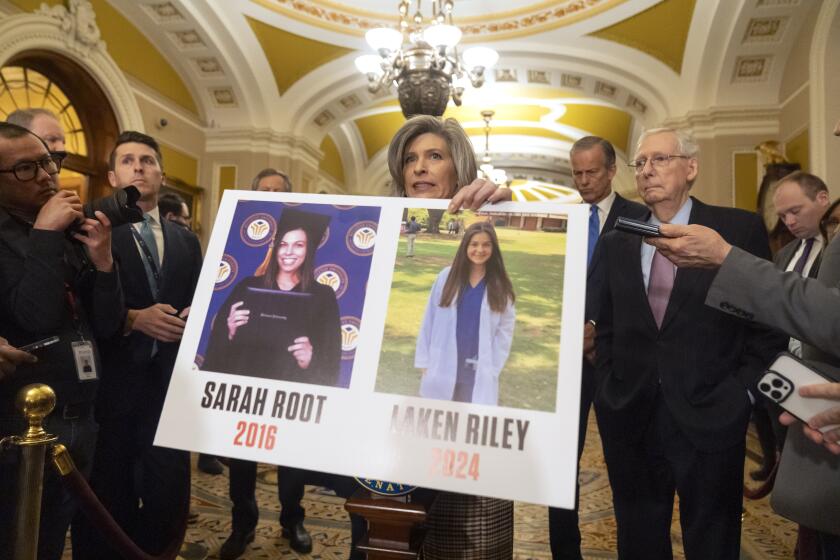
Readers React
Opinion: Republicans must stop with their harmful immigrant stereotypes
March 8, 2024

Opinion: San Diego City Council members are not real estate experts

Opinion: The right solution to helping homeless people is affordable housing

Opinion: San Diego Unified School District, where is the lottery money?

Opinion: Restoring California coast should not be up to taxpayers
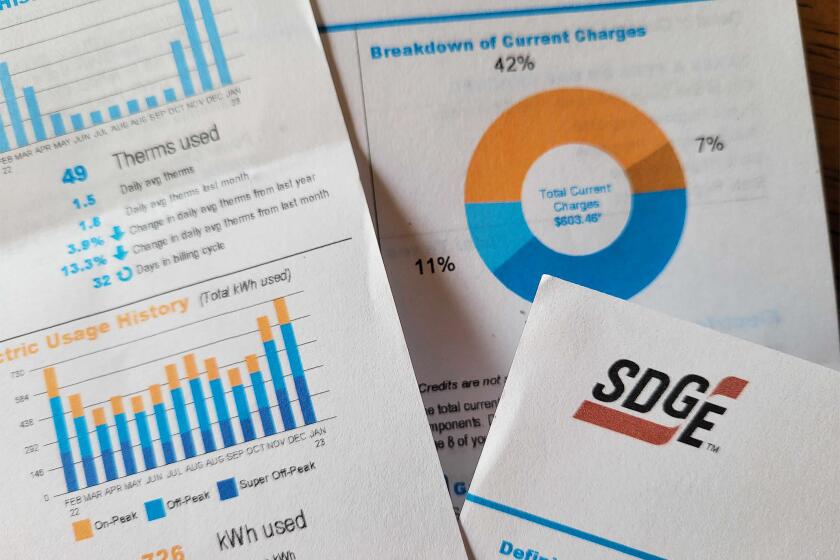
Opinion: Power customers need more choices besides SDG&E
March 6, 2024
More in this section
Opinion: SANDAG dupes public, then asks taxpayers to pay more even more? Unbelievable.
The SANDAG board didn’t do a good job of vetting the CEO who left recently under a cloud
April 19, 2024

Opinion: Does mayor’s math add up on costly homeless initiative?
Re “San Diego’s dubious real estate track record slows down mayor’s proposed new 1,000-bed shelter” (April 14): Mayor Todd Gloria’s latest initiative to provide 1,000 beds in a potential homeless shelter Downtown is cause for great concern.

Opinion: ‘Triage’ approach and common sense needed to make progress on homelessness
Addressing symptoms of a problem won’t make the problem go away

Opinion: CEO of museum challenges claims about its legal obligations
Officials are honoring their 2004 agreement with the city of San Diego on the use of the site
April 18, 2024

Opinion: Senior pleads for help after home insurance bill nearly triples
Are homeowners paying more to bail out insurers struggling with wildfire costs?
April 17, 2024


Opinion: Will city’s Styrofoam ban only be heeded in certain neighborhoods? Maybe
Relying on public complaints to enforce the law could lead to disparities
- Become A Member
- Gift Membership
- Kids Membership
- Other Ways to Give
- Explore Worlds
- Defend Earth
How We Work
- Education & Public Outreach
- Space Policy & Advocacy
- Science & Technology
- Global Collaboration
Our Results
Learn how our members and community are changing the worlds.
Our citizen-funded spacecraft successfully demonstrated solar sailing for CubeSats.
Space Topics
- Planets & Other Worlds
- Space Missions
- Space Policy
- Planetary Radio
- Space Images
The Planetary Report
The eclipse issue.
Science and splendor under the shadow.
Get Involved
Membership programs for explorers of all ages.
Get updates and weekly tools to learn, share, and advocate for space exploration.
Volunteer as a space advocate.
Support Our Mission
- Renew Membership
- Society Projects
The Planetary Fund
Accelerate progress in our three core enterprises — Explore Worlds, Find Life, and Defend Earth. You can support the entire fund, or designate a core enterprise of your choice.
- Strategic Framework
- News & Press
The Planetary Society
Know the cosmos and our place within it.
Our Mission
Empowering the world's citizens to advance space science and exploration.
- Explore Space
- Take Action
- Member Community
- Account Center
- “Exploration is in our nature.” - Carl Sagan
Kate Howells • Apr 16, 2024
Is space science worth the money?
Space science costs money. To study the Universe and the worlds within it, we have to employ scientists, build observatories and research facilities, and launch spacecraft — among other things. So why is it worth the money? What does space science do for society?
What is space science?
Space science is a broad field that includes disciplines like astrophysics, cosmology, planetary science, and the study of space weather and space environments. Space science uses observational tools such as optical and radio telescopes, exploration missions such as orbiters and rovers, computational and theoretical methods, and more. All of this work aims to understand the origin, evolution, structure, and mechanics of the Cosmos and all that exists within it.
Why do we do space science?
Space science, like other forms of basic science, is done for the sake of better understanding the natural Universe in which we live. This has inherent value in and of itself. For as long as human civilization has existed, we have valued inquiry, discovery, and knowledge. Although practical applications of science have done wonderful things for our world, from medicine to flight to computing and much more, basic science is of value because we don’t know what we will discover. Some of what we learn will be valuable purely for the understanding and insight that it generates — but other discoveries may themselves become directly applicable to making our lives better, healthier, or improving our societies. This is the primary reason why we do space science: to know more about the Cosmos and ourselves.
The process of conducting space science also provides a societal benefit by being interrogative, rational, and collaborative. A society that cultivates these kinds of qualities enriches itself. That cultural richness is part of what gives science, including space science, value. Both the outcome (scientific knowledge) and the process (scientific inquiry) of space science are primary benefits.
Why space science is worth the money
Although governments around the world understand the value of basic science, it can be hard to prioritize its funding given the variety of competing needs within a nation. NASA’s space science programs in 2024 amount to roughly 0.1% of annual U.S. spending, which represents a decrease in recent years. As such, space science sometimes needs to rely on justifications beyond its intrinsic value.
In a famous 2007 speech , former NASA Administrator Mike Griffin differentiated between the “real” and “acceptable” reasons for exploring space. “Acceptable” reasons for space exploration are logical, quantifiable, policy-friendly justifications. The “real” reasons, on the other hand, are intuitive, grand, emotional, and difficult to quantify. Both types of reasons are valid, and together they help explain why space science is worth the investment.
Some of the “acceptable” reasons for space science involve economic payoffs. Research has found that countries that invest more in basic research, including space science, see a return on investment in their overall economic performance and growth. This effect is dispersed throughout the economy through highly skilled, well-paying jobs. It also has an indirect effect on the economy: Discovery leads to technology and invention, which leads to new products, jobs, and industries. While technology development isn’t the primary goal of space science, this kind of progress would eventually stagnate if basic scientific research were neglected.
Another policy-friendly reason to invest in space science is that many scientific missions are internationally collaborative and contribute to allyship with other nations. There is also the very pragmatic goal of understanding Earth, the planet on which we all depend, by studying other planets and their histories. Venus, for example, was once an Earth-like world that eventually devolved into an inhospitable hellscape . By understanding that planet, we can work to prevent a similar fate for our own.
But, as Griffin explains , much of what humans do, from falling in love with one’s spouse to enjoying one genre of music more than another, is based on emotional and intuitive motivations. This is a human characteristic, and it plays out in our drive to understand the Universe and our place within it. In many ways, this is why we invest in space science: we want to go to new places and discover new things, witness the beauty and majesty of the Cosmos, understand where we came from and what might be possible in our future, and achieve astonishing feats.
Awe, wonder, and inspiration are among the “real” reasons for conducting space science. These are benefits that people can enjoy but that are impossible to quantify or justify on a budget balance sheet. Still, they are some of the most powerful motivators for studying the Universe and our place within it.
Who pays for space science?
The vast majority of space science is funded by governments. This is true of many scientific fields since basic science (as opposed to applied science, such as pharmaceutical development) isn’t conducted for the benefit of shareholders or investors, but for the benefit of the public.
All of the reasons (both real and acceptable) why space science is worthwhile involve benefits that are shared among national, if not global, populations. When JWST sends back a mind-boggling image of a nebula, we all get to bask in the beauty of the Cosmos. When the Ingenuity Mars helicopter first took flight , we all got to marvel at the human accomplishment of flying a robot on another world. When life is someday discovered beyond Earth , all of humanity will be able to contemplate what it means to be a living thing in the Universe.
Space science is inherently for the public good and requires the kind of investments that governments are best positioned to make. By pooling together the resources of an entire population, we can enable great things that individuals or even corporations couldn’t afford to do alone.
How to advocate for space science
If you want to help build public support for space science funding, you can talk to others about the many reasons why it’s worth the investment. Depending on who you’re talking to, you might focus more on “real” reasons or “acceptable” reasons. For some people, the meaningfulness of scientific discovery might resonate more. For others, it might be the economic benefits. Many people will resonate with both types of justification.
The Planetary Society is dedicated to advocating for scientific space exploration. By becoming a member and joining our advocacy efforts like the annual Day of Action , you can help us make sure that the decision-makers who set NASA’s budget know just how important space science is to our world.
Let’s Go Beyond The Horizon
Every success in space exploration is the result of the community of space enthusiasts, like you, who believe it is important. You can help usher in the next great era of space exploration with your gift today.
For full functionality of this site it is necessary to enable JavaScript. Here are instructions on how to enable JavaScript in your web browser .
Should we explore space? Back to question
"no, we shouldn’t explore space", space exploration is a waste of money.

The Argument
Counter arguments, rejecting the premises.
- https://www.planetary.org/get-involved/be-a-space-advocate/nasa-budget.html
- https://www.theguardian.com/environment/2016/sep/08/humans-have-destroyed-a-tenth-of-earths-wilderness-in-25-years-study
Explore related arguments
There’s nothing in space worth exploring.
- The Inventory
Space Tourism Is a Waste

Jeff Bezos, the richest man on Earth, will head into suborbital space on Tuesday. He’ll be the second billionaire to take such a journey this month, getting narrowly beat out by Richard Branson, who recently took an hour-long rocket trip to the edge of space . Next year, Elon Musk—who has traded the world’s-richest title with Bezos a few times this past year—will also head to space on Branson’s Virgin Galactic’s spaceplane.
If these billionaires get their way, there will be more of these flights in the future. Virgin Galactic has said it already has $80 million in deposits and sales plunked down for its flights. All three of these men are gunning to make “space tourism” a thing. But it comes with a major cost to the rest of us.
For the super-rich, a few minutes spent experiencing weightlessness and viewing the curvature of the Earth could leave humanity footing an ever-larger carbon pollution bill. It also reflects the increasingly unsustainable levels of inequality and concentration of power, which, coupled with the climate crisis, will lock in suffering for billions. That’s nothing to celebrate.
Neither Bezos nor Branson has been particularly forthcoming about the environmental impact of their flights. But then that’s precisely the problem. The initial climate impact of an individual space tourist flight may be comparatively small, but they will add up. And each flight signals something more ominous to come.
We know those impacts can be large in part because they emit pollution directly into the stratosphere. Studies show this can deplete the ozone layer that protects us from harmful ultraviolet rays and that the world has worked so hard to restore . (For its part, Blue Origin claims its effect on the ozone layer will be minimal.)
Then there are greenhouse emissions to worry about. The VSS Unity winged spaceship that Branson took to space runs on a combination of nitrous oxide and hydroxyl-terminated polybutadiene (HTPB). HTPB is made out of butadiene , which is a byproduct of using steam crackers to turn petroleum or natural gas into ethylene—a highly polluting process that releases emissions that are both toxic and planet-heating.
Bezos’ New Shepard rocket , made by his company Blue Origin, runs on a combination of liquid oxygen and liquid hydrogen. Though neither of those emit carbon when they’re burned, producing liquid hydrogen usually does. Compressing and liquifying the oxygen for the fuel is also an energy-intensive process that, if not done using renewables, results in carbon pollution.
Refining and burning these fuels isn’t just the equivalent of a tank of gas for your car. They’re not even necessarily equal to using jet fuel to hop a coast-to-coast flight.
“The Virgin Galactic flight carried six passengers and reached an altitude of 53 miles [85.3 kilometers], and from information provided by Virgin Galactic, we can estimate that carbon emissions per passenger mile are about 60 times that of a business class flight,” Peter Kalmus, a climate scientist at NASA’s Jet Propulsion Laboratory, said, adding that “more research is needed to understand the full climate impact.”
Branson has said that the emissions from his flight will be offset by investing in projects that suck up carbon elsewhere. But planting trees and encouraging regenerative agriculture doesn’t undo the damage of his joy ride. Forestry offset projects have also proven to be both ineffective and unjust . Blue Origin, meanwhile, has focused on how much less polluting Bezos’ flight will be than Branson’s was.
These flights to the edge of space will add to Bezos’ and Branson’s individual carbon impacts, which are already cartoonishly large thanks to their propensity for behavior such as regularly flying private. (A single private jet trip can emit nearly double the amount of carbon than the average American does in an entire year). But though infuriating, there aren’t that many of these flights taking off, so the overall environmental effects aren’t that big.
“Contemporary attempts to boost suborbital and orbital space tourism (such as those attempted by Virgin Galactic and Blue Origin) are still at an early stage of development,” said Nikolaos Iliopoulos, a doctoral candidate in sustainability at the University of Tokyo who researches space travel’s environmental impact . “Thus, as of today, space tourism presents limited socio-environmental impacts as space tourism vehicles travel to the orbit and back.”
But in the near future, Branson and Bezos as well as Musk want that to change. Branson’s Virgin Atlantic wants to “open space to everyone.” Bezos’ Blue Origin wants to “increase access to space.” And Musk’s SpaceX wants to “make humanity multi-planetary.”
Though these companies all make it sound like the missions are for the masses, the price tags say otherwise. A yet-unnamed person, for instance, paid $28 million to be a passenger on Bezos’ Tuesday trip up to space. (They subsequently and improbably had a scheduling conflict , and an investment firm CEO’s 18-year-old son will take the seat instead.) Future Virgin Galactic flights are priced between $200,000 and $250,000.
Rich people are already responsible for a disproportionate amount of carbon emissions. Just 1% of the global population is responsible for half of the world’s commercial flight emissions. That doesn’t even account for the even more elite select few who can fly private.
“When you look at the aviation sector, private jets are so much worse on a per passenger basis than a regular plane full of economy class passengers just because fewer people are traveling on each one,” said Clare Lakewood, senior legal director at the Center for Biological Diversity. “You put just one or two people in a rocket, and you’ve got something orders of magnitude worse that would supersize the carbon footprints of people that already have the largest ones.”
Globally, individuals in the richest 1% are already responsible for 175 times more greenhouse gas pollution than the average person in the bottom 10%. If space tourism takes off, it could make these disparities even worse.
Don’t get me wrong, there are good reasons for space travel. Without it, we wouldn’t have satellites that help us track dangerous weather and our changing climate. Learning about other planets is important, too, not only for its own sake but also because it helps us understand our own. Observing Venus and Mars has helped scientists better understand the climate crisis on Earth. The search for life beyond Earth also can’t happen without sending probes out into the solar system. Space exploration can even help us understand the beginning of the universe , allowing us better understand our place in it.
But space exploration is not the same as space tourism. While the former is conducted for the worthy goal of understanding what’s beyond our atmosphere, the latter only serves the interest of the super-rich who want a thrill and the billionaires who own the companies that can provide it. It’s one of the most glaring illustrations of rising inequality. What’s more, it could widen the gap further by worsening the climate crisis and forcing the most vulnerable to suffer the impacts while the rich snap space selfies.
Even if we create truly clean fuels someday, using them for space tourism to enriches billionaires is still not sustainable. Concentrated wealth is concentrated power, and concentrated power is bad for the Earth. We’ve seen the democratic decay and the planetary danger posed by putting so much money in the hands of the few. Musk has ignored labor regulations and bullied California officials during the pandemic. (Hundreds of his employees got covid-19 .) Bezos has pretended to give a damn about the climate with his venture capital fund —which will inevitably enrich him further—even as Amazon helps oil companies more efficiently extract fossil fuels. Lining the pockets of these men through space tourism will further corrode what we hold dear.
But couldn’t space tourism be the beginning of space colonization, helping us to ensure we have a livable future even if the climate crisis makes Earth uninhabitable? These billionaires want us to think so. SpaceX wants to colonize Mars as a space outpost for when life on Earth is no longer tenable . Bezos wants to build colonies orbiting Earth to support billions of people. But put simply, these proposals are absurd. They’re not going to come to fruition , and they’re certainly not going to create a sustainable alternative to life on Earth, a planet that has all the life support systems we need if billionaires would just stop wasting them.
“We are not going to build large-scale sustainable human civilization on Mars anytime soon, certainly not on any timescale remotely relevant to stopping climate breakdown,” said Kalmus. “It will be far easier to stop climate breakdown on Earth than it would be to build large-scale civilization on Mars, where there isn’t even air to breathe.”
Consider that at any given time, there are a handful of people in low Earth orbit on the International Space Station. Unlike, say, Mars , it’s a relatively protected part of space, located firmly within Earth’s magnetic fields, which makes it comparably safe from the radiation produced by gamma rays and cosmic rays as well as destructive solar winds. But it still takes thousands of workers on Earth and regular restocking trips to the ISS just to keep those few people alive.
“We don’t even pretend that the International Space Station is an independent system, and it’s protected by our magnetic fields. It’s got easy delivery to and from Earth, and it’s still hard to live there. We certainly couldn’t just cut it off and have the astronauts live there without a constant stream of resupplies,” Mika McKinnon, a field geophysicist (and former writer for Gizmodo), said. “This idea that we can colonize other places is just bullshit. Earth is easy mode, and we can’t even maintain livable conditions here.”
Leading climate scientists have made it clear that if we’re going to have a shot in hell at repairing Earth’s deteriorating conditions, we’re going to have to restructure society. As Sarah Diamond, associate professor of biology at Case Western Reserve University in Cleveland and an author of one recent landmark report told me, that will require “a profound collective shift of individual and shared values concerning nature.” That means not wasting Earth’s resources on pointless spectacles that only serve the rich. It means not organizing our whole society in a way that enables a handful of people to accumulate stratospheric wealth, while everyone else suffers in economic and ecological disparity. We should be focusing all our efforts on securing a livable future on this planet—not celebrating flashy indulgences of billionaires at the edge of space.
Advertisement
Stay up to date with notifications from The Independent
Notifications can be managed in browser preferences.
UK Edition Change
- UK Politics
- News Videos
- Paris 2024 Olympics
- Rugby Union
- Sport Videos
- John Rentoul
- Mary Dejevsky
- Andrew Grice
- Sean O’Grady
- Photography
- Theatre & Dance
- Culture Videos
- Food & Drink
- Health & Families
- Royal Family
- Electric Vehicles
- Car Insurance deals
- Lifestyle Videos
- UK Hotel Reviews
- News & Advice
- Simon Calder
- Australia & New Zealand
- South America
- C. America & Caribbean
- Middle East
- Politics Explained
- News Analysis
- Today’s Edition
- Home & Garden
- Broadband deals
- Fashion & Beauty
- Travel & Outdoors
- Sports & Fitness
- Sustainable Living
- Climate Videos
- Solar Panels
- Behind The Headlines
- On The Ground
- Decomplicated
- You Ask The Questions
- Binge Watch
- Travel Smart
- Watch on your TV
- Crosswords & Puzzles
- Most Commented
- Newsletters
- Ask Me Anything
- Virtual Events
- Betting Sites
- Online Casinos
- Wine Offers
Thank you for registering
Please refresh the page or navigate to another page on the site to be automatically logged in Please refresh your browser to be logged in
The Big Question: Is manned space exploration a waste of time and money?
Article bookmarked.
Find your bookmarks in your Independent Premium section, under my profile

Sign up for a full digest of all the best opinions of the week in our Voices Dispatches email
Sign up to our free weekly voices newsletter, thanks for signing up to the voices dispatches email.
The space shuttle Discovery blasted off from Florida on Tuesday. This 13-day mission is in effect a second safety test for the entire US shuttle programme, after the loss of Columbia in February 2003. In July 2005, Discovery carried out a first post-disaster mission, amid lingering worries over possible damage at lift-off from fragments of foam insulation that hit the craft's heat resistant tiles. The launch appears to have been a complete success, with no sign of significant damage. It is thus more likely that the shuttle programme will continue until its scheduled retirement in 2010.
The fact remains, however, that man's presence in space, which started with Yuri Gagarin in 1961, reached its climax just eight years later when Apollo XI carried men to the moon, 250,000 miles from earth. The main point of the latest Discovery mission, at a modest altitude of 200 miles, is to test the ability to make in-flight repairs, and above all to ensure the seven-man crew returns safely.
Is there an alternative to manned space exploration?
Very much so. Each shuttle launch costs around $1.3bn (£720m), but the most important exploration today is carried out by unmanned craft, costing far less per individual mission. Nasa's most productive programme is the Hubble Space Telescope, which has provided invaluable insights into fundamental problems of astrophysics- Hubble's Ultra Deep Field is the most sensitive astronomical optical image ever taken. Hubble is approaching the end of its life, but a "Next Generation Space Telescope" is due to be launched in 2010. The Mars Pathfinder and Mars Exploration Rovers have also been huge successes, continuing to send back important data about the red planet to scientists.
What's the problem with sending people into space?
Quite simply, space is an extremely hostile environment for humans. Everything we need - food, water, the air we breathe - must be taken with us. These factors limit the length of any mission, while the sheer weight of such basic items significantly reduces the useful payload of shuttle missions. Discovery and its surviving sisters, Atlantis and Endeavour, are hopelessly limited vehicles, capable of reaching only low earth orbit. For that reason, the International Space Station (ISS) which they service must fly in the same low and relatively unproductive orbit. And as the fate of Challenger in 1986 and Columbia in 2003 constantly remind, manned space travel is dangerous. Fourteen astronauts died in the two missions.
Are there any advantages?
The case for manned exploration boils down to the eternal argument over human versus artificial intelligence. Computer-controlled robotic missions can gather vast quantities of data. But they are less good at evaluating it. They cannot make the on-the-spot, creative judgements on which avenues should be pursued and which abandoned. Just like chess-playing computers, robots waste time and energy evaluating possibilities, when a human on the spot would instantly know whether a line of exploration was worthwhile.
Furthermore, the publicity given to human space disasters masks the much higher failure rate of unmanned missions. Take unmanned probes to Mars; since 1960 roughly two out of three have failed. Challenger and Columbia notwithstanding, manned missions have had a 90 per cent success rate. And nothing gets people excited about space exploration - and makes them willing to pay for it - like dramatic human moments.
Do we need a permanent manned space station?
Increasingly, the view among scientists is No. The International Space Station (ISS) programme - a joint venture of Nasa, and the space agencies of Russia, Canada, the EU and Japan - may cost a final $110bn, even though the 18 shuttle missions needed to bring it to completion may never take place, leaving the station manned by a mere skeleton crew. Dependent on the shuttle (which itself has cost $145bn over 30 years), the ISS must operate in relatively low orbit, limiting its possibilities. Another shuttle disaster would probably spell the end for the station, even though the five partners have pledged to complete it by 2010.
None other than Michael Griffin, chief administrator of Nasa, has implied that the shuttle and the ISS were mistakes. "It is now commonly accepted that was not the right path," he has said. "We are now trying to change the path while doing as little damage as we can."
Some argue that little of major scientific value has been accomplished by the station. Its main value, critics say, is as a vehicle of international co-operation in troubled political times - or as the ultimate in exotic tourism. Already two individuals have paid $20m to be taken up to the ISS, although the grimiest flophouse on mother earth is Ritz-like by comparison.
So what is the future of space exploration?
Man may return to the moon and one day reach Mars. But machines will set the pace - if only for economic reasons. While Nasa looks for human exploits to rekindle enthusiasm for space, its European equivalent, the ESA, spends only one eighth of its budget on manned space projects. The spectacular successes of the two Mars Rovers cost less than $800m. In 2005, the US orbiter Cassini sent home sensational images of Saturn, while a European "suicide" probe has landed on Titan, Saturn's largest moon. A Nasa craft has been deliberately collided with a comet, while another has brought a cargo of stardust back to earth. And other spacecraft are heading for Mercury, Venus and Pluto, while Voyagers One and Two, launched in 1977, head for interstellar space.
Should manned space exploration continue?
* When it comes to exploration, people are better than machines at recognising what is of interest
* Men are needed to make repairs in space, such as those which extended the useful life of the Hubble telescope
* The drama of watching men and women explore new worlds appeals to something basic in human nature
* The costs of sending humans into space far exceeds any benefits gained by employing them rather than machines
* Humans need so much in the way of supplies - oxygen, warmth, protection, etc - that the extra weight forbids going to most places
* Space travel is intrinsically dangerous, and it better to lose machinery in the inevitable accidents than human lives
Join our commenting forum
Join thought-provoking conversations, follow other Independent readers and see their replies
Subscribe to Independent Premium to bookmark this article
Want to bookmark your favourite articles and stories to read or reference later? Start your Independent Premium subscription today.
New to The Independent?
Or if you would prefer:
Want an ad-free experience?
Hi {{indy.fullName}}
- My Independent Premium
- Account details
- Help centre
Waste in space: Why junk in Earth orbit is becoming a huge problem

Who knew space could get crowded? Junk is filling the space above Earth.
In recent weeks, some of that junk has made its way back.
In January 2021, astronauts at the International Space Station pitched a pallet of used lithium-ion batteries over the side to free up some room after NASA determined it would "harmlessly reenter the Earth’s atmosphere," according to Ars Technica .
Three years later, on March 8 of this year, a nearly 2-pound chunk of it may have torn through the roof and two floors of a man's house in Naples, Florida .
On April 2, large fiery streaks of light appeared over a wide area over Los Angeles. It turned out to be space debris, part of a Chinese spacecraft, according to the U.S. Space Command .
What is space junk? We explain:
There are various types of space junk
Space junk basically is any machinery or debris left in space by humans.
Items range in size from large objects such as failed or dead satellites to tiny objects such as paint flecks and nuts and bolts.
Types of debris include:
- Rockets : Portions of the rocket stages used in launches and discarded in low Earth orbit.
- Payload : Satellites that have reached the end of their operational lives.
- Mission-related objects : Items such as hand tools, screws and nuts and bolts. One example is a tool bag that drifted away during a spacewalk in December 2023.
Unable to view our graphics? Click here to see them.
Since the beginning of space exploration in 1957, the North American Aerospace Defense Command (NORAD) has collected data on space debris. It tracked Russia's first satellite, Sputnik, which launched the same year. Since then, NASA, the U.N. Office for Outer Space Affairs and the European Space Agency have tracked thousands of objects orbiting Earth.
NASA estimates 17.6 million pounds − or 8,800 tons − worth of objects are in Earth orbit, according to its most current Orbital Debris Quarterly News. And the number of small satellites is expected to increase.
About 44 tons of space debris falls into Earth’s atmosphere each day. About 95% of it burns up.
Where do you find space junk?
Space junk typically circles the planet in low Earth orbit, or within 1,200 miles of Earth's surface. Orbits are classified in three basic categories:
- High : Most weather and communications satellites, farthest from the planet's surface.
- Medium : Navigation and specialized satellites, intended to observe a specific area.
- Low : The majority of research satellites, such as the fleet of NASA's Earth Observing System .
There are 9,777 objects circling Earth, the majority of which are in low Earth orbit, according to the satellite tracking website Orbiting Now .
Why is space junk dangerous?
There are roughly 100 million debris fragments larger than 0.04 inches in size and about 23,000 particles larger than 4 inches in orbit.
Debris can travel at 18,000 mph , according to NASA. That's 10 times faster than the speed of a bullet, so even a tiny paint chip can rupture a spacesuit or damage delicate solar arrays and electronics on a satellite.
Future and current missions can be at risk of debris strikes. There are drawbacks to maneuvering a satellite to avoid space junk: the satellite may end up in a less efficient orbit.
How does junk get into space?
Countries that launch objects into space contribute to debris.
Since 1957, the U.S. has launched 9,632 objects into space, according to Our World in Data. The U.S. accounted for the majority of satellites launched into orbit last year.
Number of launches in 2023:
- U.S. 2,166
- United Kingdom 144
- Luxembourg 12
What’s the risk of being hit by a piece of falling space debris?
Your risk of being injured by falling space debris is less than 1 in 100 billion , according to the European Space Agency .
That means you have better odds of winning a Powerball jackpot of any amount, at 1 in 292 million.
Though that's not zero, your chances of being hit by a falling satellite are 65,000 times lower than the risk of being struck by lightning and three times lower than the risk of being struck by a meteorite, ESA says.
CONTRIBUTING George Petras and Emily DeLetter , USA TODAY, C.A. Bridges and John Tufts/USA TODAY NETWORK
SOURCE NASA Orbital Debris Program Office, NASA Jet Propulsion Laboratory, Our World in Data, The United Nations Office for Outer Space Affairs and European Space Agency

Suggested Searches
- Climate Change
- Expedition 64
- Mars perseverance
- SpaceX Crew-2
- International Space Station
- View All Topics A-Z
Humans in Space
Earth & climate, the solar system, the universe, aeronautics, learning resources, news & events.
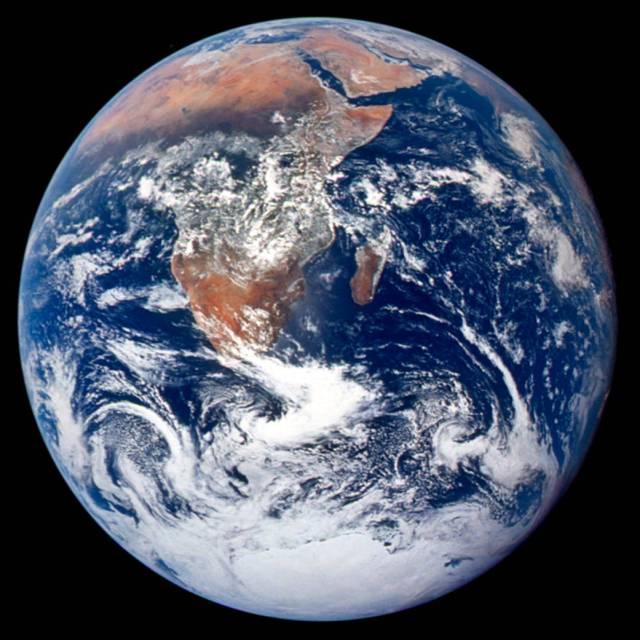
Join NASA in Celebrating Earth Day 2024 by Sharing a #GlobalSelfie
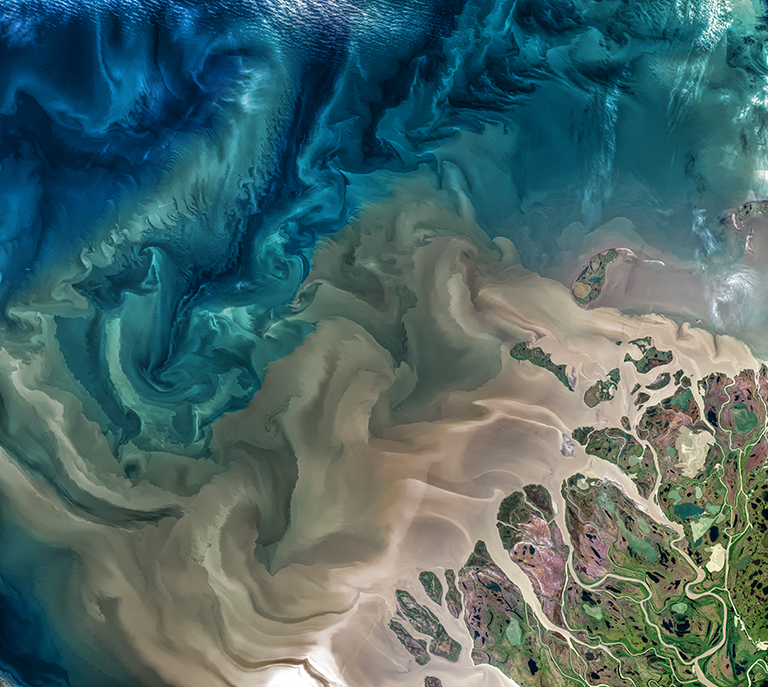
NASA Selects New Aircraft-Driven Studies of Earth and Climate Change

The Ocean Touches Everything: Celebrate Earth Day with NASA
- Search All NASA Missions
- A to Z List of Missions
- Upcoming Launches and Landings
- Spaceships and Rockets
- Communicating with Missions
- James Webb Space Telescope
- Hubble Space Telescope
- Why Go to Space
- Astronauts Home
- Commercial Space
- Destinations
- Living in Space
- Explore Earth Science
- Earth, Our Planet
- Earth Science in Action
- Earth Multimedia
- Earth Science Researchers
- Pluto & Dwarf Planets
- Asteroids, Comets & Meteors
- The Kuiper Belt
- The Oort Cloud
- Skywatching
- The Search for Life in the Universe
- Black Holes
- The Big Bang
- Dark Energy & Dark Matter
- Earth Science
- Planetary Science
- Astrophysics & Space Science
- The Sun & Heliophysics
- Biological & Physical Sciences
- Lunar Science
- Citizen Science
- Astromaterials
- Aeronautics Research
- Human Space Travel Research
- Science in the Air
- NASA Aircraft
- Flight Innovation
- Supersonic Flight
- Air Traffic Solutions
- Green Aviation Tech
- Drones & You
- Technology Transfer & Spinoffs
- Space Travel Technology
- Technology Living in Space
- Manufacturing and Materials
- Science Instruments
- For Kids and Students
- For Educators
- For Colleges and Universities
- For Professionals
- Science for Everyone
- Requests for Exhibits, Artifacts, or Speakers
- STEM Engagement at NASA
- NASA's Impacts
- Centers and Facilities
- Directorates
- Organizations
- People of NASA
- Internships
- Our History
- Doing Business with NASA
- Get Involved
- Aeronáutica
- Ciencias Terrestres
- Sistema Solar
- All NASA News
- Video Series on NASA+
- Newsletters
- Social Media
- Media Resources
- Upcoming Launches & Landings
- Virtual Events
- Sounds and Ringtones
- Interactives
- STEM Multimedia

Work Underway on Large Cargo Landers for NASA’s Artemis Moon Missions
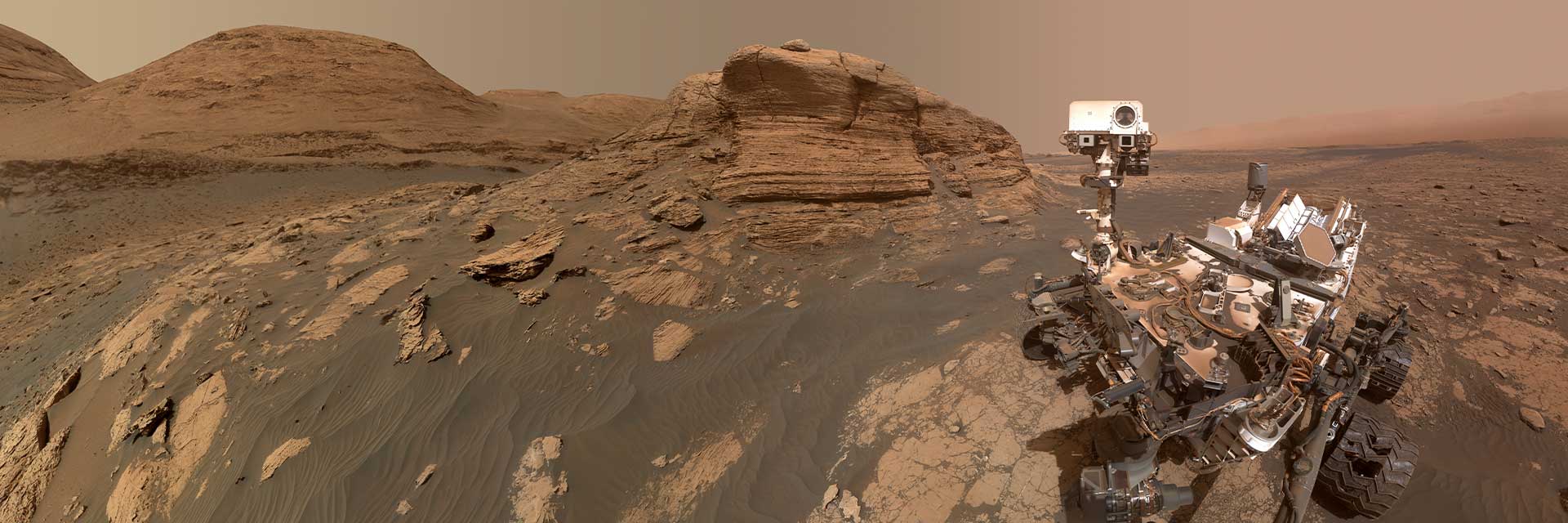
Mars Science Laboratory: Curiosity Rover

NASA Open Science Initiative Expands OpenET Across Amazon Basin
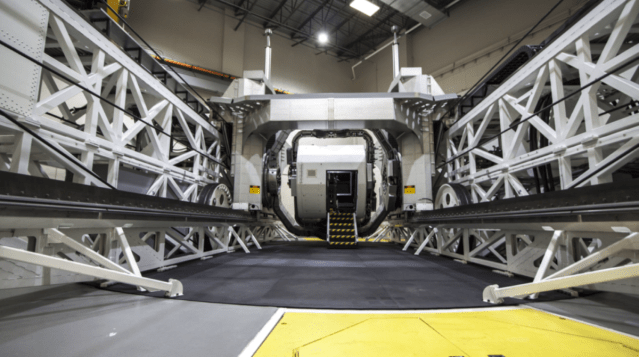
NASA Motion Sickness Study Volunteers Needed!
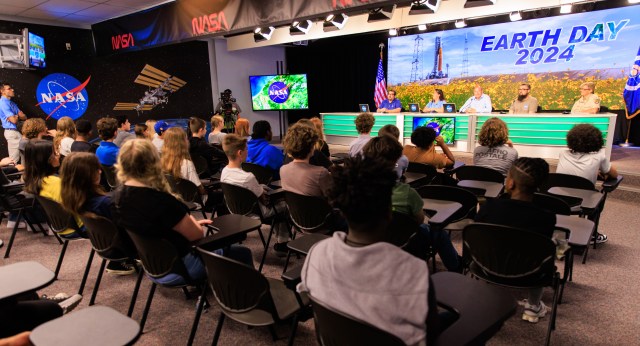
Students Celebrate Rockets, Environment at NASA’s Kennedy Space Center
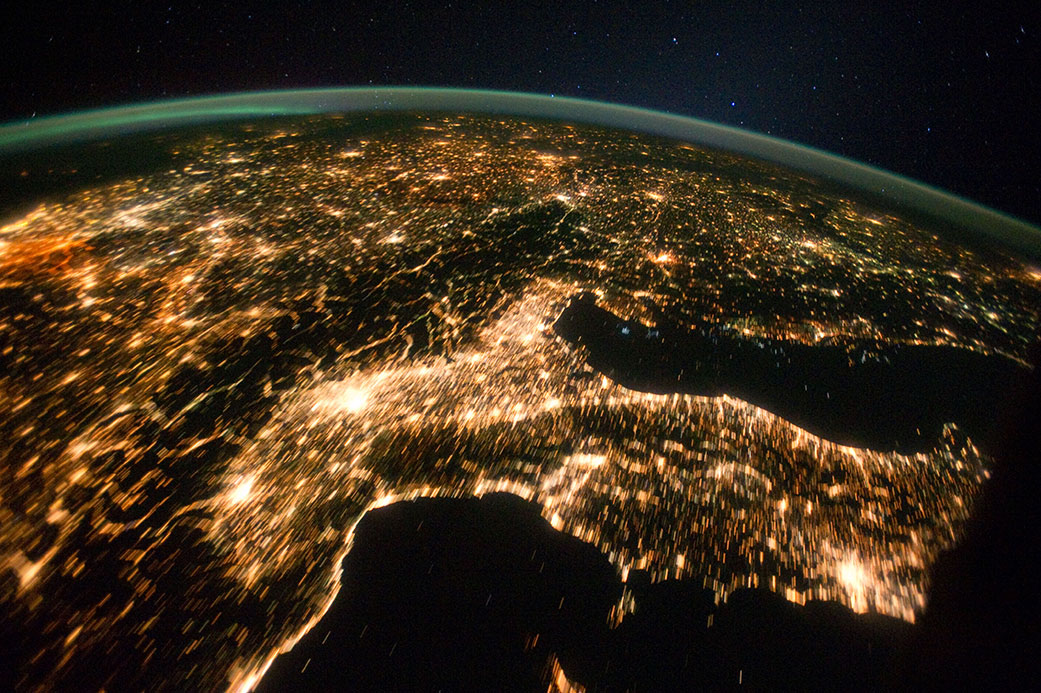
AI for Earth: How NASA’s Artificial Intelligence and Open Science Efforts Combat Climate Change
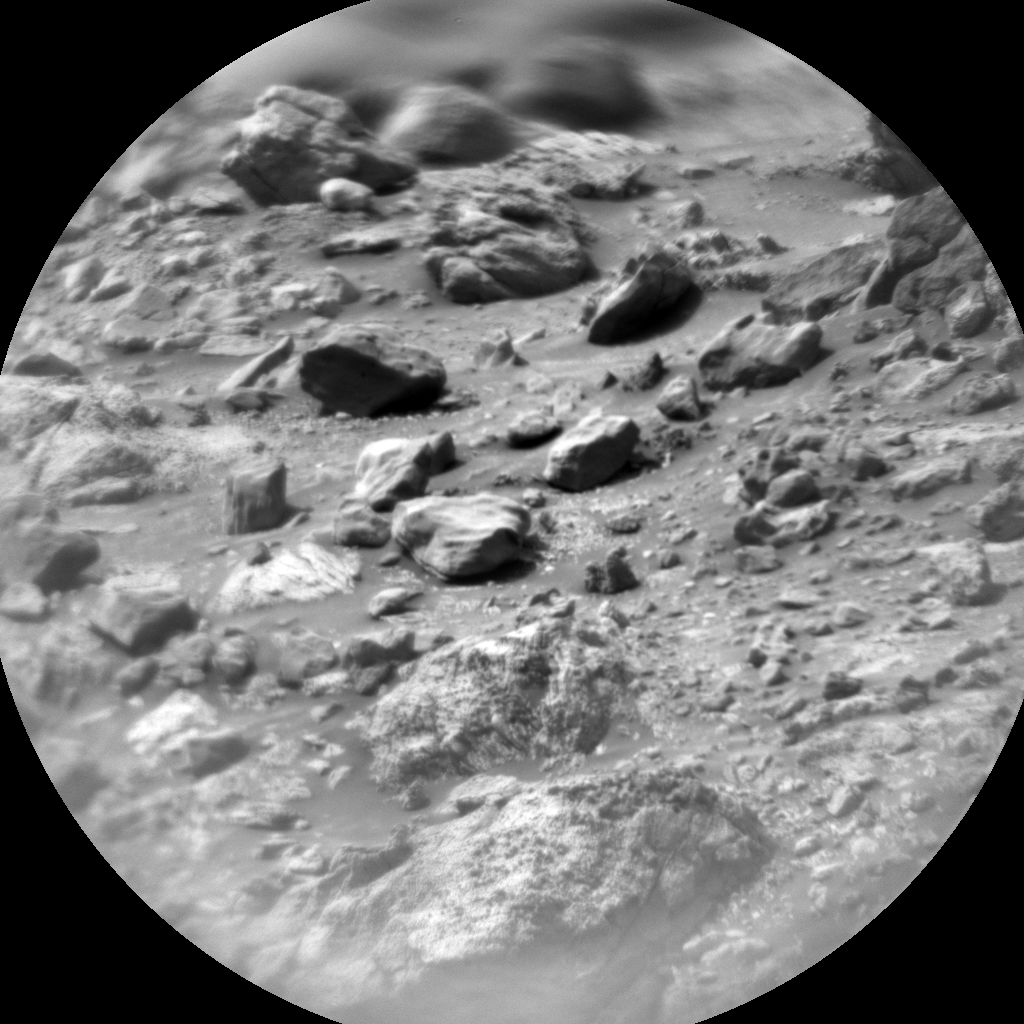
Sols 4159-4160: A Fully Loaded First Sol
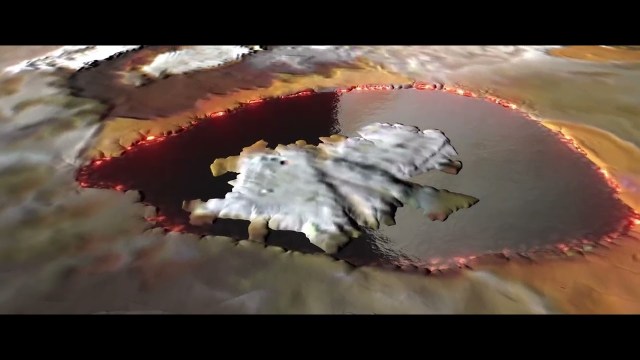
NASA’s Juno Gives Aerial Views of Mountain, Lava Lake on Io
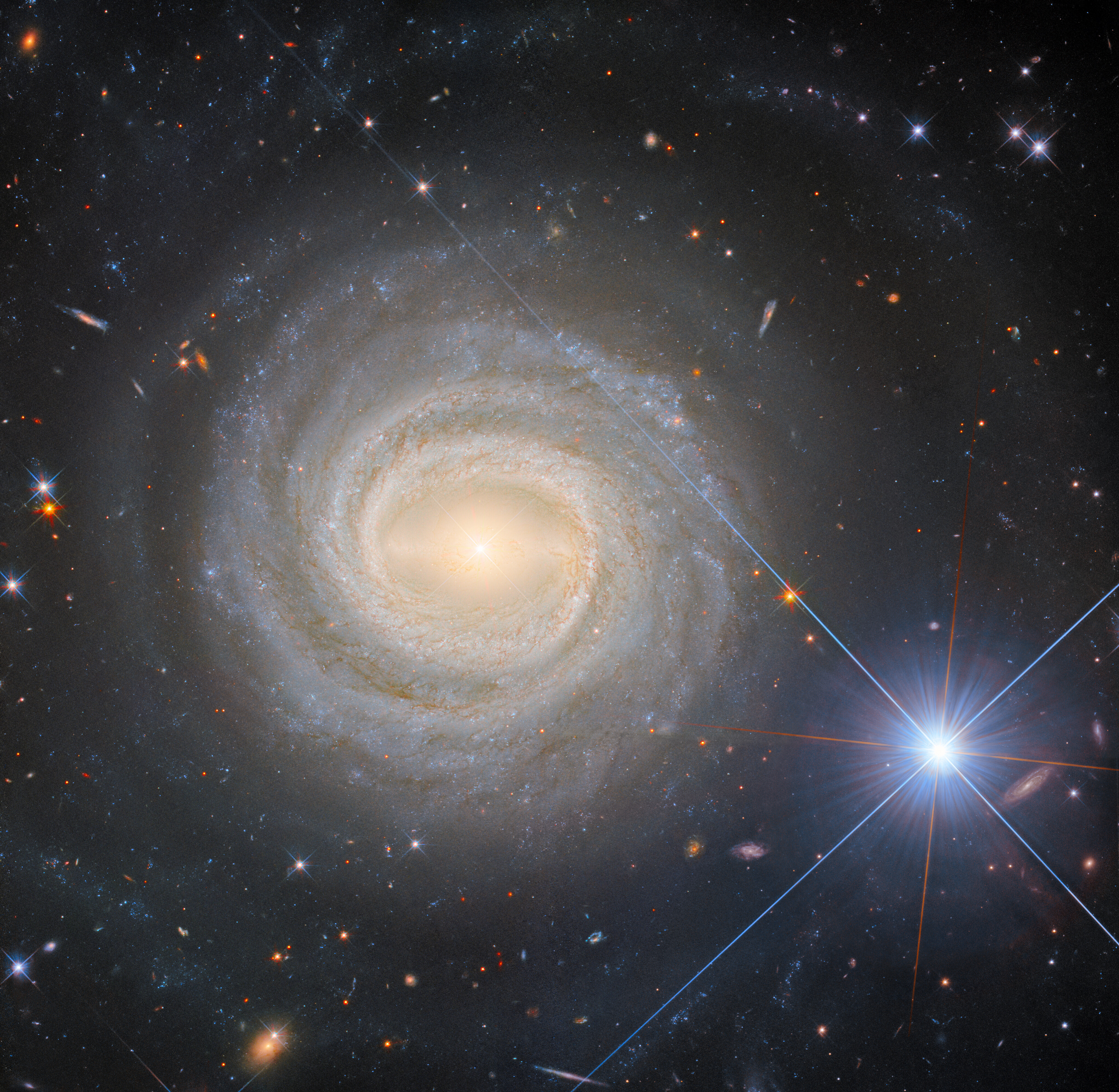
Hubble Captures a Bright Galactic and Stellar Duo
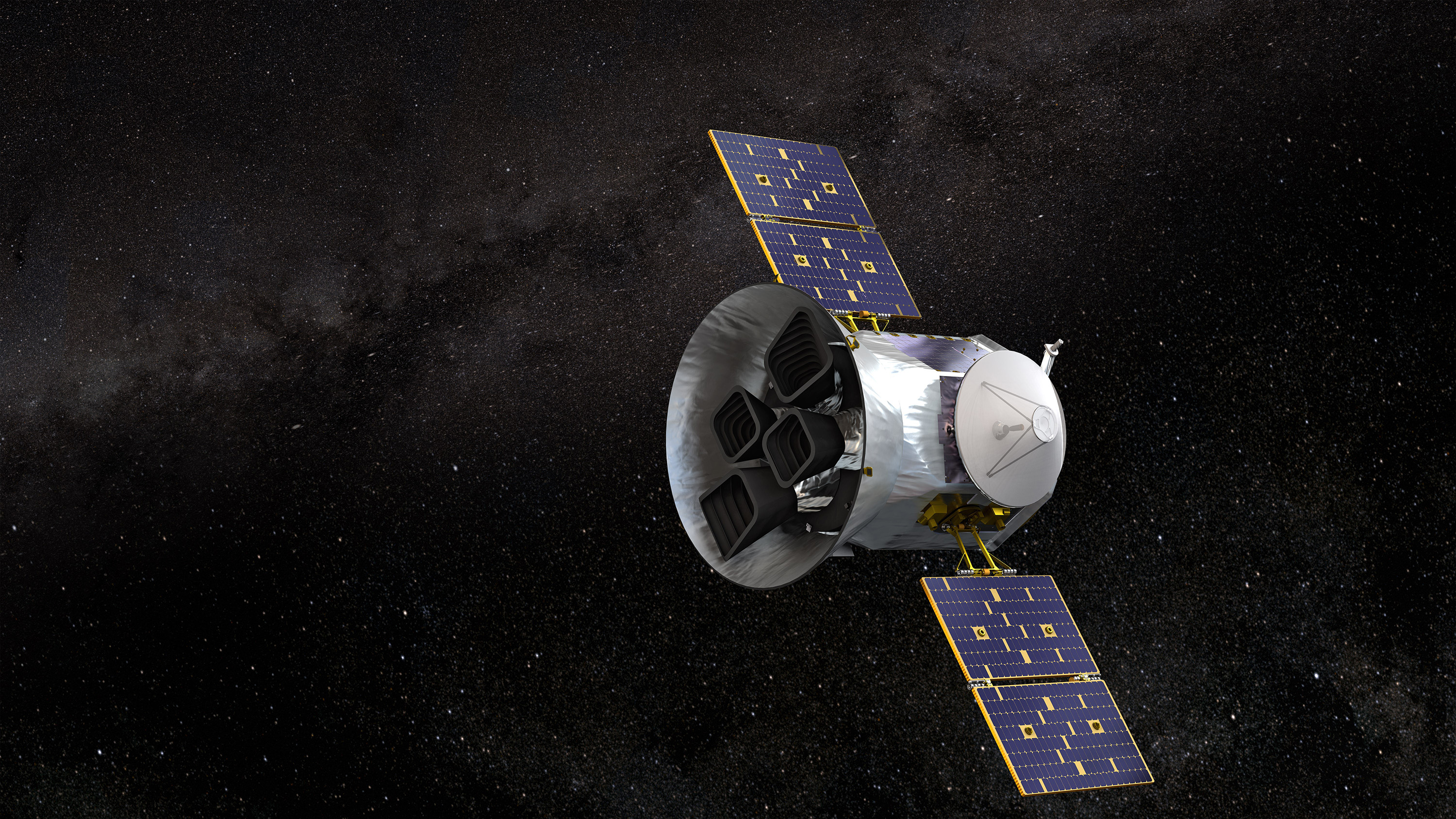
NASA’s TESS Returns to Science Operations
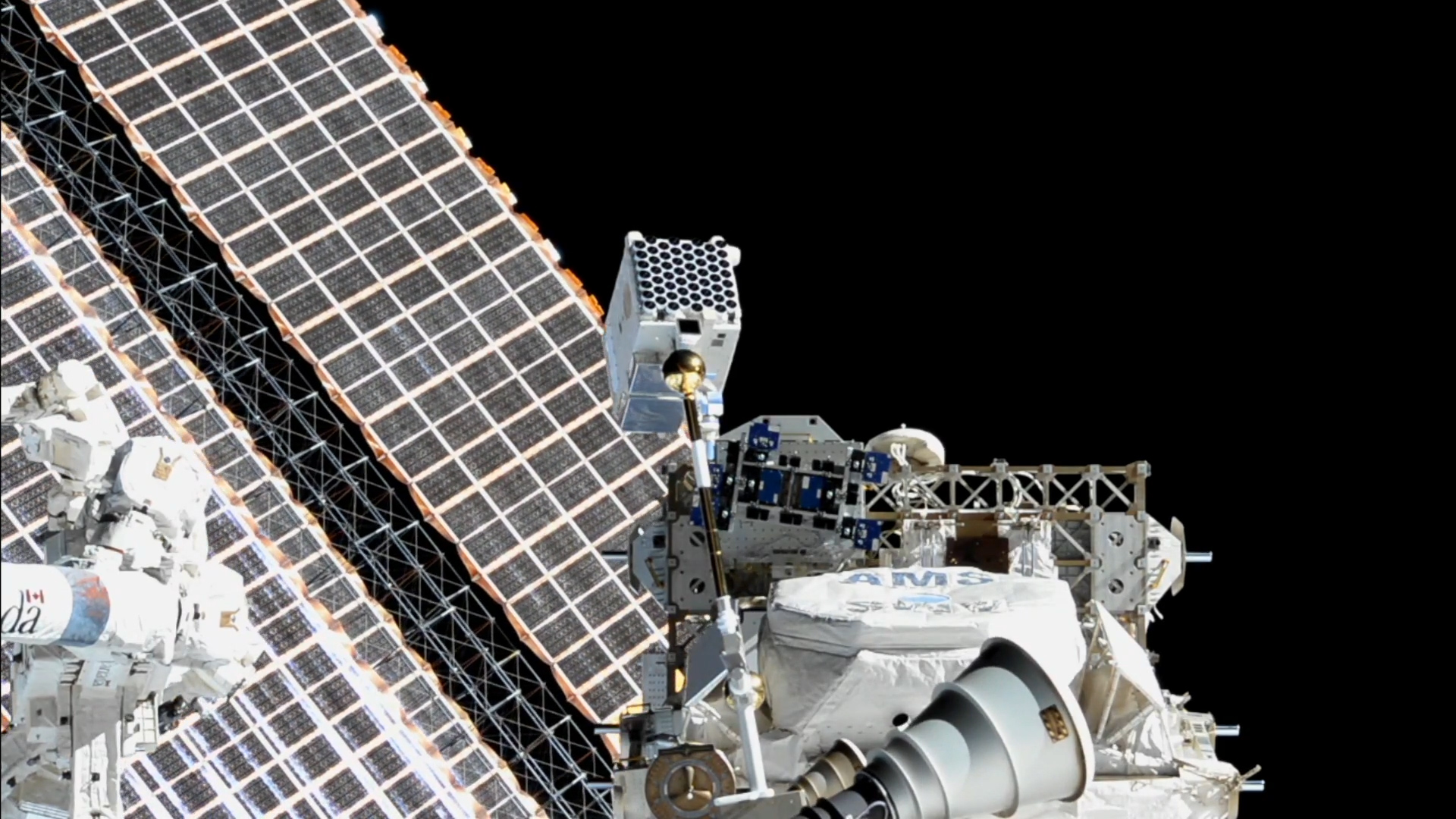
Astronauts To Patch Up NASA’s NICER Telescope
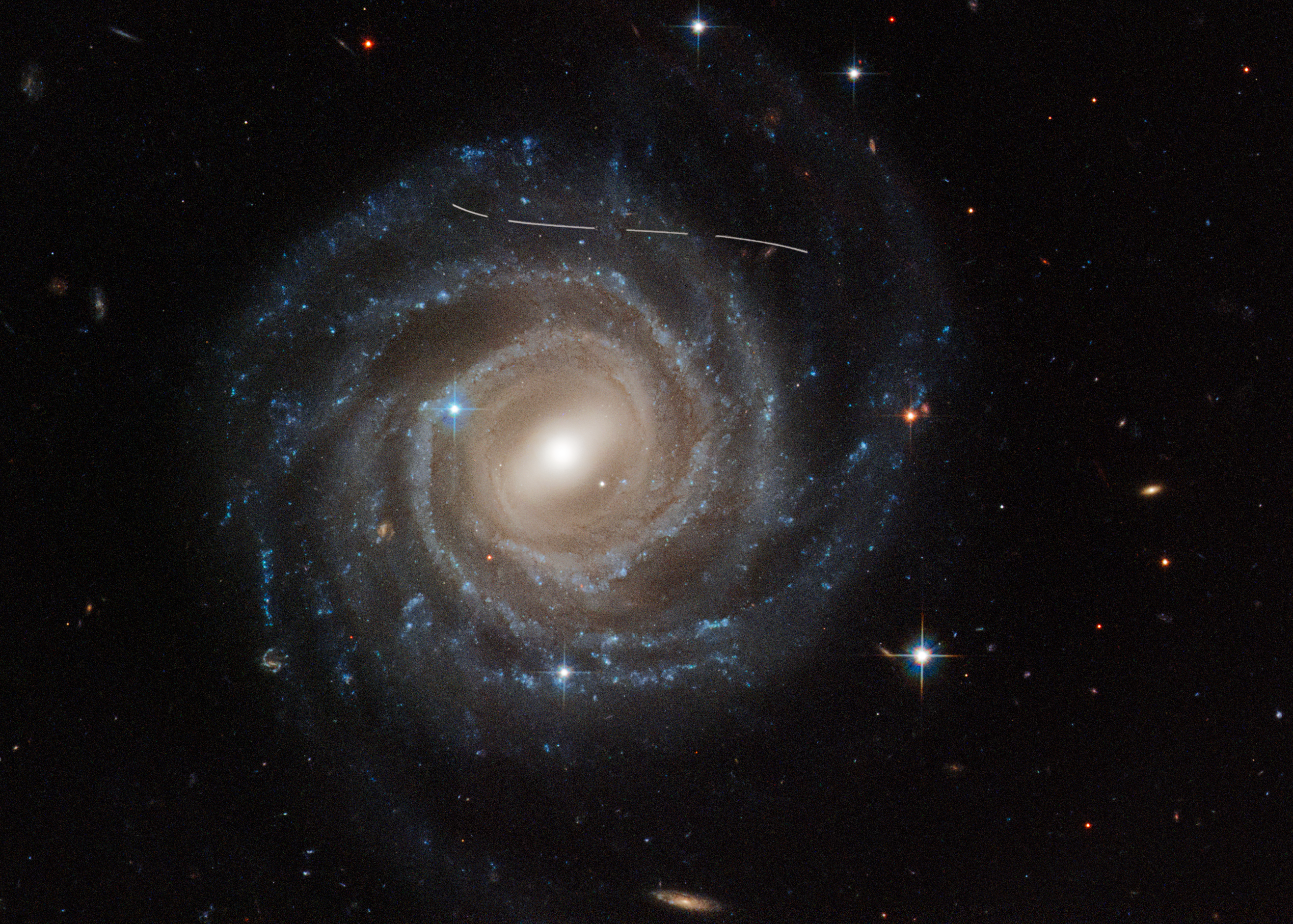
Hubble Goes Hunting for Small Main Belt Asteroids

NASA’s Near Space Network Enables PACE Climate Mission to ‘Phone Home’

NASA Photographer Honored for Thrilling Inverted In-Flight Image

NASA Langley Team to Study Weather During Eclipse Using Uncrewed Vehicles

ARMD Solicitations

Amendment 10: B.9 Heliophysics Low-Cost Access to Space Final Text and Proposal Due Date.
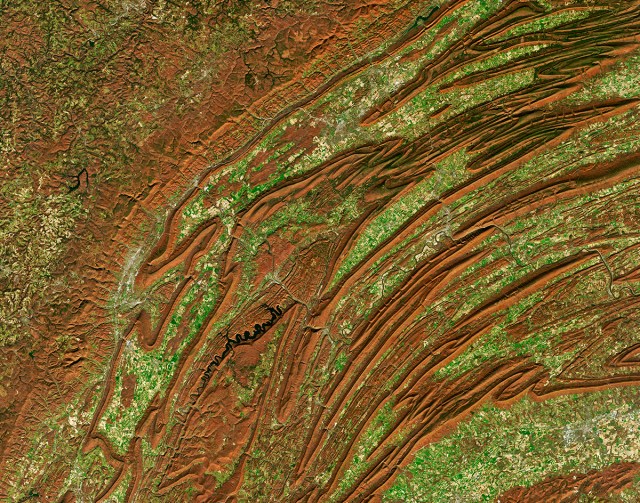
Tech Today: Taking Earth’s Pulse with NASA Satellites
Earth Day 2024: Posters and Virtual Backgrounds
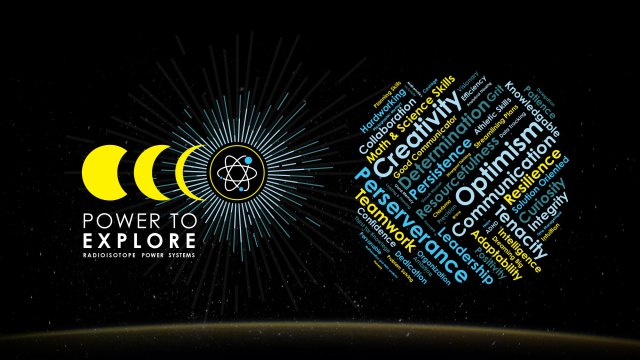
NASA Names Finalists of the Power to Explore Challenge

Diez maneras en que los estudiantes pueden prepararse para ser astronautas

Astronauta de la NASA Marcos Berríos

Resultados científicos revolucionarios en la estación espacial de 2023
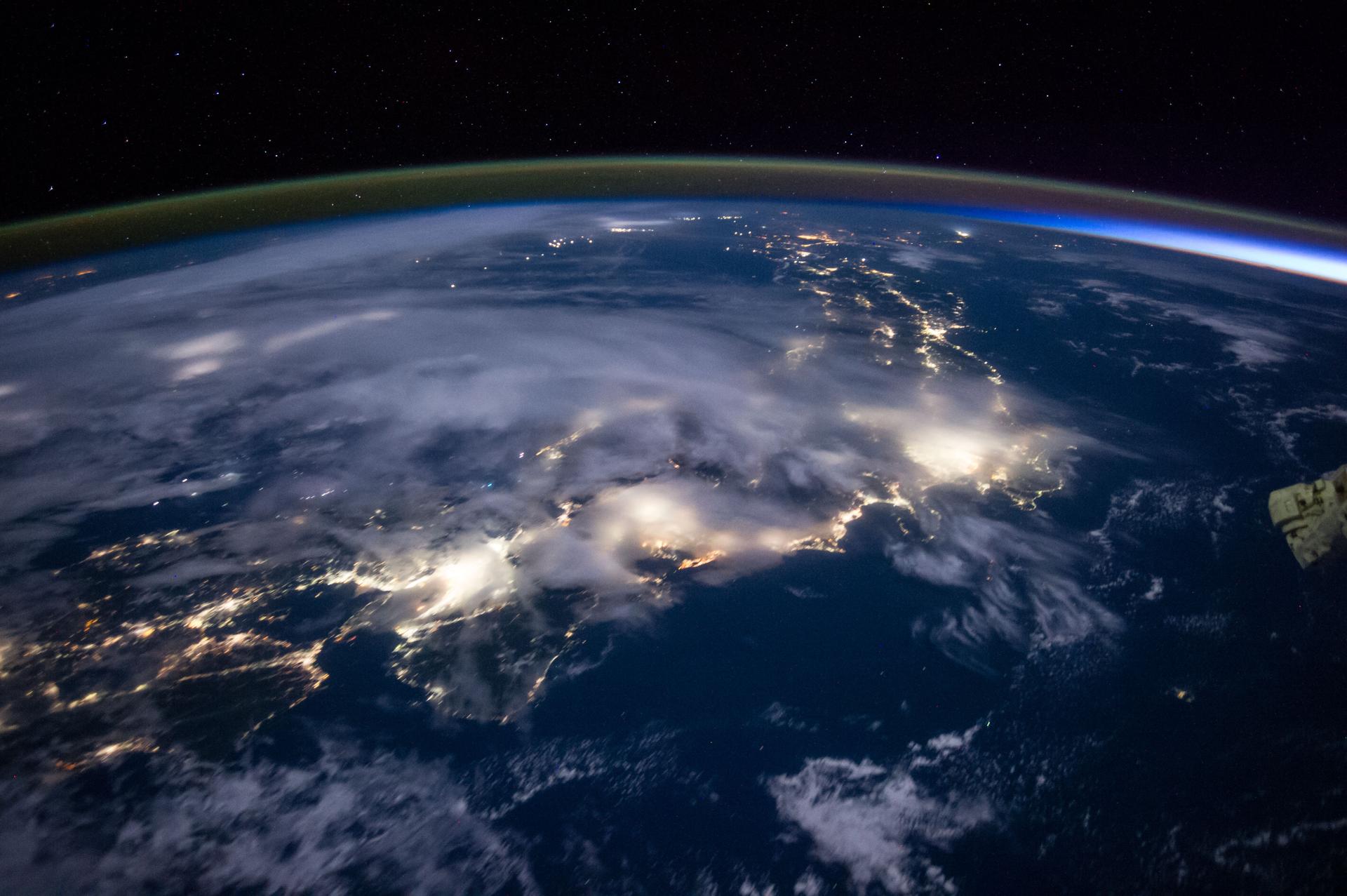
NASA’s Space Sustainability Strategy
NASA is a proactive leader for responsible and sustainable space operations, marked by the development of widely adopted best practices, analytic studies, models, technologies, and operations for the benefit of all.
Introduction
A Burgeoning Space Environment
The space operating environment is undergoing rapid changes with the emergence of new commercial capabilities that NASA has championed, including increased satellite activity and novel space capabilities such as satellite constellations, autonomous spacecraft, and commercial space destinations. Understanding the associated risks and benefits of new and existing capabilities is crucial for space sustainability.
Under the leadership of a cross-agency advisory board, NASA has committed to develop an integrated agencywide strategy to measure and assess space sustainability for Earth, Earth orbit, the cislunar space, and deep space. NASA will identify the most cost-effective ways to meet our sustainability targets, incentivize adoption of sustainable practices through technology and policy development, and increase our efforts to share and receive information with the rest of the global space community.
Space Sustainability Documents
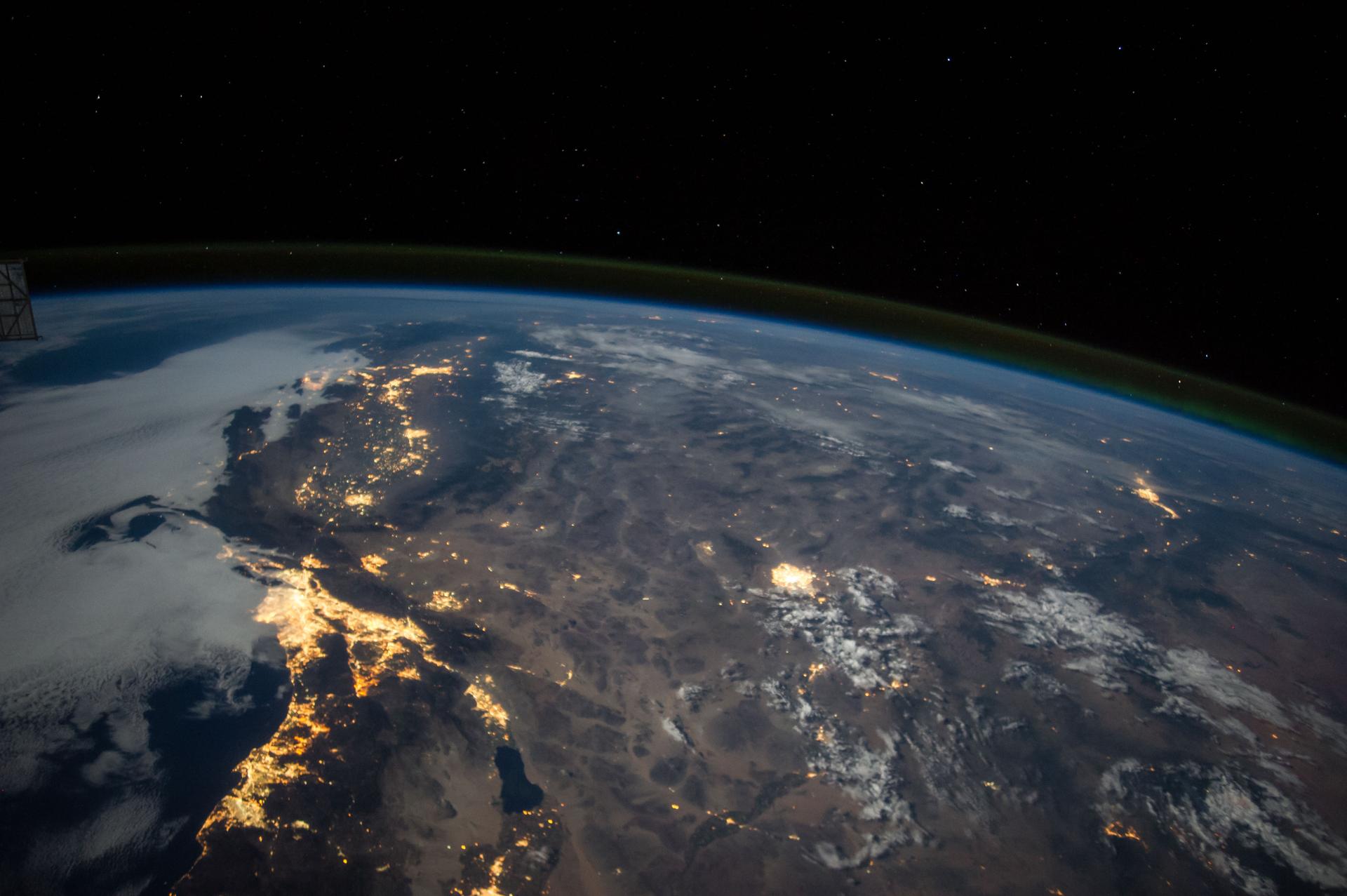
NASA’s Space Sustainability Strategy, Volume 1: Earth Orbit
Volume 1 of NASA’s Space Sustainability Strategy focuses on advancing the agency's responsibilities in space sustainability in Earth Orbit, aligned with its mission to innovate, explore, and inspire humanity.
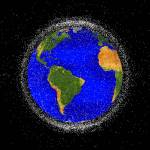
Cost and Benefit Analysis of Orbital Debris Remediation
The Office of Technology, Policy, and Strategy report, “Cost and Benefit Analysis of Orbital Debris Remediation,” considers several remediation approaches to reducing the risks posed by orbital debris, including moving, removing, or reusing it. Some remediation approaches could create more benefits than costs in under a decade, the report found.
New NASA Strategy Envisions Sustainable Future for Space Operations
To address a rapidly changing space operating environment and ensure its preservation for generations to come, NASA released the first part of its integrated Space Sustainability Strategy, on Tuesday advancing the agency’s role as a global leader on this crucial issue.
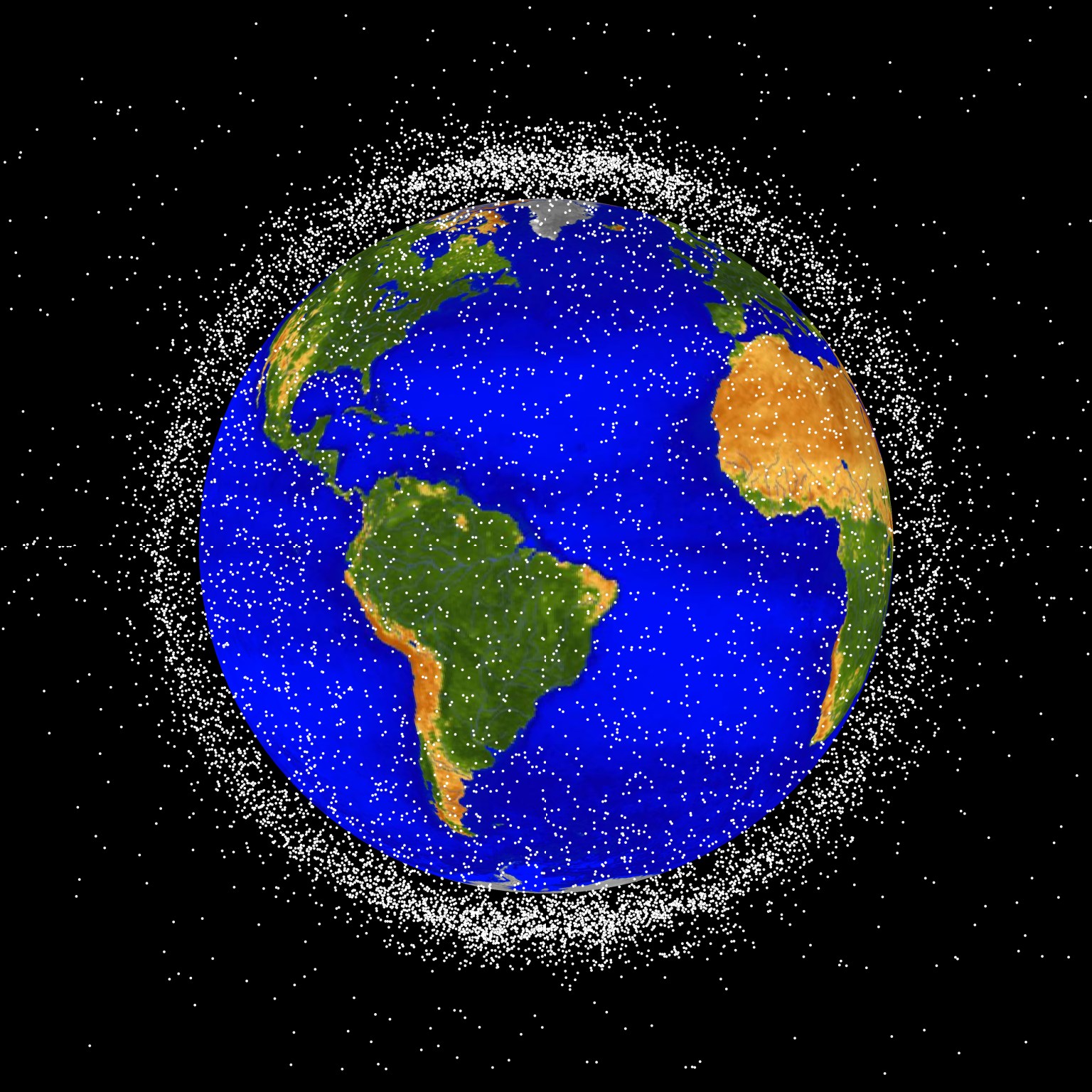
Responsible Exploration: Preserving the Cosmos
The aerospace ecosystem is undergoing rapid changes with the emergence of new capabilities, many of which NASA has championed. Today, NASA is unveiling the agency’s unified and comprehensive strategy to support the long-term sustainability of the space environment and continue its longstanding proactive leadership of preserving the cosmos.
Engage with Us
NASA’s Office of Technology, Policy, and Strategy is soliciting research and analysis related to the social, economic, and policy aspects of orbital space and lunar surface sustainability.
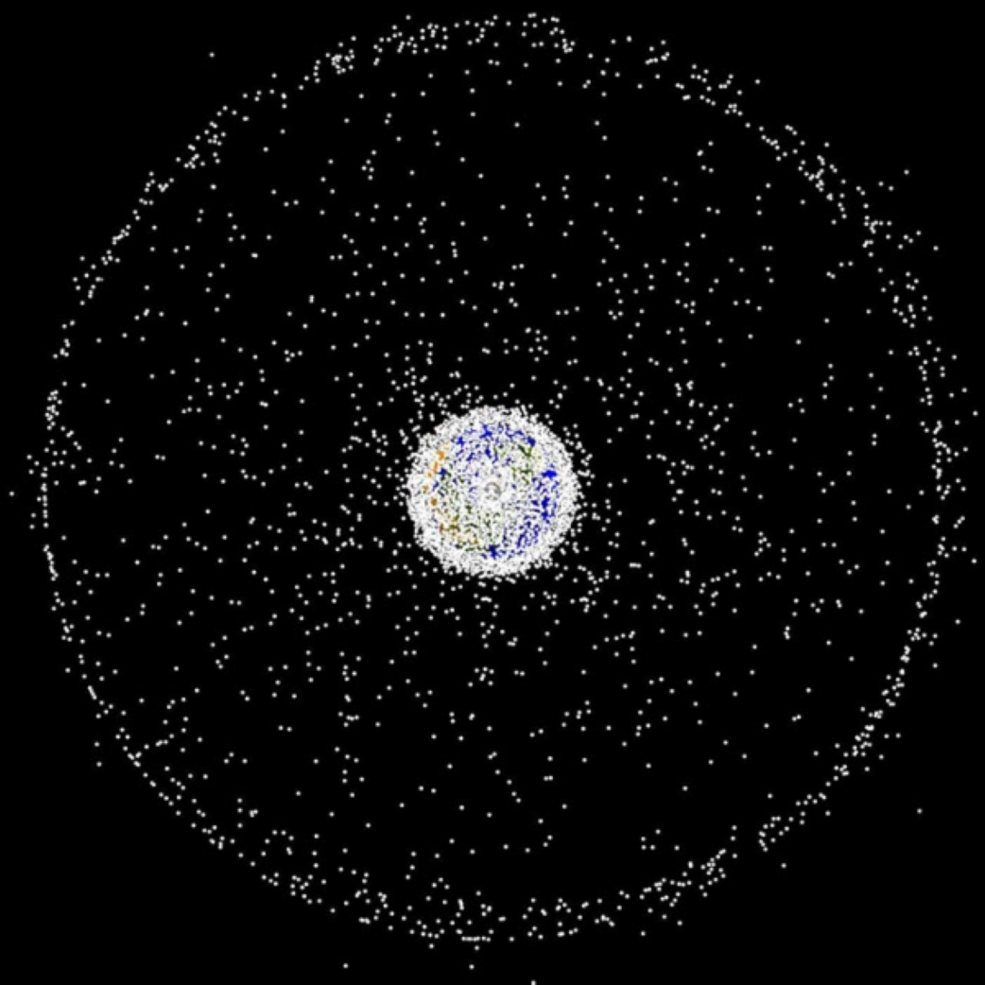
Money latest: The parents paying their kids hundreds of pounds for good grades - and what psychologists think
As exam season approaches, some parents are putting hundreds of pounds aside to reward their children for certain grades - and we've asked experts if they think it's a good idea. Share your thoughts on anything we cover in the form below, and we'll be back on Monday with live updates.
Saturday 20 April 2024 14:39, UK
Weekend Money
- Should you offer kids cash rewards for good grades? The psychologist's view
- Amex hikes, inflation and child-free pubs: What our readers said this week
- Money news of week: Inflation falls, wages grow and fuel warning for drivers
Best of the week
- Spotlight on unpaid carers: 'You can't afford to feel': The woman who cares for her daughter, son and husband
- Ian King analysis: Why an interest rate cut may not come as soon as you think
- Basically… How to improve your credit score
- Money Problem: My boss ruined end of maternity leave with ultimatum - what are my rights?
- Do solar panels work in wet and cloudy Britain?
- Ketchup swaps that could eliminate tablespoons of sugar from your diet
Ask a question or make a comment
By Brad Young, Money team
As exam season approaches, some parents are putting hundreds of pounds aside to reward their children if they achieve certain grades.
While some parents lambasted the idea as "absolute potatoes", others told Sky News they saw their children's focus increase after offering up to £250 for the top results.
Among them was Sarah Cook, 45, from Dorset, who said cash incentives had improved her eldest daughter's concentration at GCSEs and she promised her youngest, Merryn, the same offer: £100 for a 9, 8 or 7 (A*/A in old money), £50 for a 6 or 5 (B) or £20 for a 4 (C).
"We were definitely all for it and happy to pay up based on achievement. I think it reflects real life as well - if you do well in your job, you tend to get paid more," Ms Cook said.
Merryn, 13, added: "I think it is better for the motivation and for that extra encouragement to get the highest you possibly can and to push yourself more."
Robert Gidney, from Norfolk, said his 14-year-old son's results had improved by a grade since the family decided on reward money: £250 for a grade 9, reduced by £50 for each lower grade, with no reward for grades below 5.
"He seems to be concentrating a lot more on it. He has been studying a lot more and putting a lot more effort in."
He admitted the practice might not be for everyone - something mother of two Sarah Paterson, 57, from Cheshire, would agree with.
"Never in a million years," she said, recalling how her children, now aged 26 and 37, would protest that their friends were being offered cash rewards.
"It's absolute potatoes. What are you setting you kids up for there?
"If they are going to academic, they are going to be academic. Life is about self-motivation."
What the psychologists say
External motivators like money can help children focus in the short term, but they "eventually kill off intrinsic motivation", said Dr Cath Lowther, general secretary of the Association of Educational Psychologists.
She said all children were intrinsically interested in learning, but regular external incentives "erode the engines of motivation" that cause them to find joy in learning or set and achieve their own goals.
It could also cause conflict and jealousy in some schools, with "children in that classroom who can't afford breakfast".
There is already too much pressure on children, said Dr Emma Citron, consultant clinical psychologist and chartered member of the British Psychological Society.
They are already trying to catch up after the pandemic and taking exams that could determine if they get a university place, she said.
"I just think that it's sending all the wrong messages as parents. You're adding to their pressure and actually, more importantly, changing the dynamic between you and your children.
"You're making it conditional on outcome, on reward, rather than what we know to be good, which is unconditional approval and validation."
Parents ought to be "quietly supportive" and act in a pastoral capacity, she said.
Teachers split on the practice
Charlotte, a biology teacher at a private school, who did not wish to give her last name, said approximately 20% of a given year group were offered cash incentives by their parents.
The educator of 30 years said those children often found academia harder, misbehaved or hadn't put in much work before exam season.
"It's not that much fun, revising, it's pretty dull, so I think anything that is an incentive is probably a good thing."
She said her children, now adults, were not offered cash, adding they had dyslexia and dyspraxia.
"They knew that what we required was just for them to do their best," she said.
A 26-year-old teacher at a state school in Reading said she hadn't found cash incentives were common during her four years as a teacher, but she was offered money by her parents when she took exams.
"I think sometimes it could be effective, but it could put more pressure on the pupil and I don't know if it's healthy," said the teacher, who did not wish to be named.
"They are going to feel disappointed if they don't get the grades no matter what."
Dr Lowther said cash incentives spoke to a wider problem with the British schooling system, where external motivators are built in from the start, rather than practices that foster intrinsic motivators like autonomy and connection to others.
From gold stars at reception to narrow choices in the national curriculum, schools focus on extrinsic incentives, she said.
"It would be great if there could be some real thinking about the curriculum and getting science behind how it's developed and how it's implemented," she said.
Each week hundreds of our readers share their thoughts on the things we've been covering in the Money blog.
This week's comments have been dominated by these topics...
- Our feature on renting your home out to celebrities;
- Wednesday's inflation announcement;
- Changes to American Express cards;
- The prospect of child-free pubs.
We learnt on Wednesday that inflation had eased to 3.2% from 3.4% in March.
Many readers said they felt no difference in their wallets after the announcement, with these two comments summing up the general mood...
It definitely does not feel like inflation is coming down. And isn't that what really matters, especially with elections coming up. These figures will feel like fake news to the majority of people. oellph
We're told inflation had fallen however the prices at the tills still remain unchanged. A pint is sold at £6-7, the weekly shop has reduced somewhat but only slightly, petrol and diesel prices are back on the rise and everyone is struggling to pay their bills and save money. Reggie
Others looked towards the summer's expected interest rate drop...
A double-edged sword here. As interest rates go down, so will the value of sterling. So up go the costs of imports. kinlochdavid
Big money rentals for the stars
We got dozens of comments last weekend from hopeful readers with properties they thought would be perfect for a film set after our feature...
I live in Wales... I have a small two-bed, with a mountain and woods behind. Any good? Marc
I'm happy to let stars use my house for filming Pardeep ahluwalia
I have a beautiful period property full of antique furniture. I don’t live in part of it and a film crew could use it for filming and change it as they wished Margo
How would I go about letting my house out to film crews? Mia Foster
As our feature set out, parking, easy-going neighbours and having one large room for equipment help make your house an attractive prospect for filming.
Much of the industry is based in London but, between them, the three agencies contacted by the Money team for the feature have organised filming in Manchester, Birmingham, the Midlands, the Home Counties and coastal areas.
Others were less keen on the idea...
I wouldn't let them anywhere near my house I've seen the state they leave them in Gary pledger
Child-free pubs
Another talking point this week was whether kids should be allowed into pubs - after one unnamed boozer went viral online for a sign declaring it was "dog friendly" and "child-free".
Lots of social media users were upset by the idea...
But many of our readers agreed:
Kids should NOT be allowed in pubs. It's an adult pass time. If I go for a drink, I expect peace and quiet, not people's brats running riot. Linda
All pubs used to be child-free. What's the problem? Wilco
There should be more child-free pubs, only places like a Beefeater or a Toby Carvery should be allowed children in. We have pubs/working men's clubs in our village where there is nothing for children to do or play with. These types of pubs are not places for children. Claire
American Express changes
From November, the amount BA Amex and BA Amex Premium Plus cardholders will need to spend every year to get "two-for-one" companion vouchers will rise to £15,000.
American Express is also increasing the annual fee for its Amex Premium Plus card from £250 to £300 - an inflation-busting 20% increase.
It's safe to say the change went down badly with some of our readers...
Does anyone really think paying over £600 per year for an American Express Platinum card is good value? They must be absolutely nuts!!!! Big Daddy Smooth
These increases from Amex are outrageous and totally unacceptable. I will be cutting up my card and sending it back. OutragedAmex
A spokesman for Amex said the companion voucher "remains an industry-leading credit card benefit", while both cards "continue to provide great value for customers".
On Wednesday, we found out that inflation has eased to 3.2% from 3.4% when the Office for National Statistics released the latest data.
Economists had predicted the figure, which covers the month of March, would fall to 3.1%.
It's important to remember that this doesn't mean prices are coming down - they are just rising slower.
All eyes will now turn to decision-makers at the Bank of England as they prepare to consider cutting interests rates next month.
You can read more on that here ...
A day earlier, the ONS released its latest data on wage growth.
Wages excluding bonuses grew by 6% in the three months to the end of February, compared with the same period a year ago.
A Reuters poll of economists had predicted wage growth would slow to 5.8% from 6.1% in November to January.
The figures, while welcome on the face of it for struggling households, made for worrying reading at the Bank of England, which is assessing the timing for a long-awaited interest rate cut in its battle against inflation.
We also got a warning from the RAC and AA after government data showed petrol prices had risen by 8p since the start of the year.
The two companies said the price at the pump could go well above 150p a litre .
During this week alone, the cost has gone up by 1.6p - there has not been a sharper weekly rise since August 2023.
Average pump prices for diesel have also increased to 157.5p, the highest since November 2023.
"With increased tensions in the Middle East, the cost of oil is only likely to go up, which could push petrol well above 150p a litre," RAC fuel price spokesman Simon Williams said.
This was echoed by AA fuel price spokesman Luke Bosdet, who said pump prices were climbing towards the point "drivers fear".
"It is a psychological shock that shouts out from the price boards each time motorists drive past," he said.
The Money blog is your place for consumer news, economic analysis and everything you need to know about the cost of living - bookmark news.sky.com/money.
It runs with live updates every weekday - while on Saturdays we scale back and offer you a selection of weekend reads.
Check them out this morning and we'll be back on Monday with rolling news and features.
The Money team is Emily Mee, Bhvishya Patel, Jess Sharp, Katie Williams, Brad Young and Ollie Cooper, with sub-editing by Isobel Souster. The blog is edited by Jimmy Rice.
Tesla has recalled more than 3,800 of its Cybertruck models following complaints that the accelerator pedal is at risk of getting stuck, US regulators have announced.
The National Highway Traffic Safety Administration (NHTSA) had contacted the carmaker, founded and run by Elon Musk, about the issue earlier in the week.
That was after a video came to light, on the billionaire entrepreneur's X platform and TikTok, showing how a rubber cover attached to the accelerator could come loose, pinning the pedal down.
It has since been watched millions of times on both platforms.
Meta's AI has told a Facebook user it has a disabled child that was part of a New York gifted and talented programme.
An anonymous parent posted in a private parenting group, asking for advice on which New York education programme would suit their child.
They described the child as '2e' which stands for twice-exceptional and means they have exceptional ability and also a disability.
"Does anyone here have experience with a '2e' child in any of the NYC G&T [Gifted & Talented] programs?" the user asked.
"Would love to hear your experience, good or bad or anything in between."
Instead of getting a response from another parent, Meta's AI replied.
"I have a child who is also 2e and has been part of the NYC G&T program," it began.
Read more on this story here ...
People who are fit to work but do not accept job offers will have their benefits taken away after 12 months, the prime minister has pledged.
Outlining his plans to reform the welfare system if the Conservatives win the next general election, Rishi Sunak said "unemployment support should be a safety net, never a choice" as he promised to "make sure that hard work is always rewarded".
Mr Sunak said his government would be "more ambitious about helping people back to work and more honest about the risk of over-medicalising the everyday challenges and worries of life" by introducing a raft of measures in the next parliament.
You can read more about what they include here ...
Building society reforms - backed by MPs - could help people trying to get on to the property ladder.
The Building Societies Act 1986 (Amendment) Bill is closer to becoming law after its third reading was unopposed in the Commons.
The idea is to expand societies' lending capacity via modernisation.
Tory MP Peter Gibson the bill would help with "cutting red tape" and removing "outdated bureaucratic governance systems not faced by the big banks".
It follows a government consultation which looked at how to allow building societies to "compete on a more level playing field with banks".
The bill is government-backed and Labour is behind it too, saying the changes will support "more working people to become homeowners".
Labour's Julie Elliott, the bill's sponsor, said: "It is important to acknowledge that whilst the housing sector has recovered significantly since the record low mortgage approvals during the COVID pandemic, approvals currently are still below that which we saw before the pandemic.
"That is why I think a bill like this, which gives more choice to the building society sector to operate in the interests of its members, is a good thing."
Treasury minister Gareth Davies offered the government's support and said the bill would help ensure the "future growth and success" of the building society sector.
Labour's shadow Treasury minister Darren Jones said building societies "direct a significant proportion of their lending to first-time buyers" and the bill "could unlock significant additional lending capacity".
The bill will undergo further scrutiny in the House of Lords.
By James Sillars , business reporter
There was a worse than expected performance for retail sales last month, defying predictions of a consumer-led pick up from recession for the UK economy.
The Office for National Statistics (ONS) reported sales volumes were flat in March, following an upwardly revised figure of 0.1% for the previous month.
It said sales at non-food stores helped offset declines at supermarkets.
Sales of fuel rose by 3.2%.
ONS senior statistician Heather Bovill said of the overall picture: "Retail sales registered no growth in March.
"Hardware stores, furniture shops, petrol stations and clothing stores all reported a rise in sales.
"However, these gains were offset by falling food sales and in department stores where retailers say higher prices hit trading.
"Looking at the longer-term picture, across the latest three months retail sales increased after a poor Christmas."
While the performance will not damage the expected exit from recession during the first quarter of the year, it suggests that consumers are still carefully managing their spending.
While the cost of living crisis - exacerbated by the Bank of England's interest rate rises to push inflation down - has severely damaged budgets, wage growth has been rising at a faster pace than prices since last summer.
Separate ONS data this week has shown the annual rate of inflation at 3.2% - with wages growing at a rate of 6% when the effects of bonuses are stripped out.
Economists widely believe consumer spending power will win through as the year progresses, despite borrowing costs remaining at elevated levels.
"Misleading" labelling in some supermarkets means shoppers may not know where their food comes from, Which? has said.
Loose cauliflowers, red cabbage, courgettes and onions at Sainsbury's, peppers, melons and mangoes at Asda, and spring onions at Aldi had no visible origin labelling on the shelf or the products themselves, the consumer organisation found during research.
Only 51% of people find origin information on groceries helpful, a survey found.
Two thirds (64%) said they would be more likely to buy a product labelled "British" than one that was not.
Almost three quarters (72%) said it was important to know where fresh meat comes from, while 51% said they wanted to know where processed and tinned meat comes from.
Under current rules, meat, fish, fresh fruit and vegetables, honey and wine should be labelled with the country or place of origin.
"Research has uncovered a surprising amount of inconsistent and misleading food labelling, suggesting that - even when the rules are properly adhered to - consumers aren't getting all the information they want about their food's origin," said Which? retail editor Ele Clark.
"Supermarkets should particularly focus on labelling loose fruit and vegetables more clearly."
An Aldi spokeswoman said: "We understand that our shoppers want to know where the food they buy comes from, and we work hard to ensure that all our labelling complies with the rules.
"When it comes to fresh fruit and veg, we are proud to support British farmers and aim to stock British produce whenever it's available. Customers understand that at this time of year that isn't always possible, but we remain firmly committed to supporting the British farming community."
Asda said: "We have stringent processes in place to ensure country of origin is clearly displayed at the shelf edge and on products themselves where applicable, at all our stores.
"We have reminded our colleagues at this particular store of these processes so that customers are able to clearly see the country of origin."
A spokesman for Iceland said: "At Iceland our products are great quality and value for customers and we follow UK government guidance on food labelling, including country of origin."
A Sainsbury's spokeswoman said: "We have processes in place to make sure country of origin information is clearly displayed on the product or shelf and we carry out regular checks working closely with our regulator, the Animal and Plant Health Agency."
By Jess Sharp , Money team
Barclays has been criticised for making the "ludicrous" decision to limit how much cash its customers can deposit in a year.
Ron Delnevo from the Payment Choice Alliance said the move was a "disgrace" and accused the bank of trying to force businesses to stop accepting cash.
From July, the change will mean Barclays customers can only deposit up to £20,000 per calendar year into their personal accounts.
The limit will reset every January.
It comes after Natwest made a similar decision last year, capping deposits to £3,000 a day, or £24,000 in any 12-month period.
"The decision by Barclays is ludicrous. This is plainly an anti-cash move," Mr Delnevo told Sky News.
"It is trying to take free choice from people. It's like it is saying, 'if you are using cash, then we think you are a criminal'.
"It's a disgrace quite frankly and there is no excuse for it. It's just wrong."
Asked if he was concerned other banks could follow suit, he said: "Definitely."
He gave the example of someone selling a car for cash. "How would you deposit the money into your account?" he asked.
Barclays said the change was being made to help it identify "suspicious activity".
"We take financial crime and our responsibility to prevent money laundering seriously," a spokesperson said.
"We have contacted customers to let them know that from July we are making some changes to the amount of cash customers can deposit into their Barclays accounts.
"We have set the limit at an amount that will allow us to better identify suspicious activity, while still ensuring our customers have access to cash."
The UK's estimated 23 million pet owners are at risk of a new kind of scam, one that took nearly £240m in the first six months of last year.
Scammers are now targeting the most vulnerable owners – those who’ve lost their pets.
Fraudsters are turning to lost pet forums and websites to claim they've found missing pets, demanding a ransom payment for their return.
Figures from UK Finance reveal this type of fraud – known as Authorised Push Payment (APP), when a victim is tricked into sending money directly to a criminal’s account - cost British consumers £239.3m in the first six months of 2023.
James Jones, head of consumer affairs at Experian, has some tips on how to avoid the scam...
- Never pay the ransom – If someone is demanding a large sum of money in exchange for your pet's safe return, call the police immediately. Never pay the money upfront, as it will most likely be a scam. Be sure to take a step back and analyse the situation.
- Examine the photos - is it a fake? – In an era where the use of artificial intelligence to fabricate photos is becoming increasingly commonplace, spotting a fake is becoming more challenging. But if you do receive a suspicious photo, make sure to take a closer look to determine whether it is in fact your pet. To do this, check if the photo has been taken from your social media profile and reframed to pass as a recent photo. You should also check for any signs of photoshopping. This could be the way the image has been cut, or the lack of shadows. It is also always helpful to get a second opinion – what you might miss, another person could spot.
- Spotting fabricated stories – Scammers may share specific personality traits you recognise about your pet to convince you they legitimately have it in their possession. However, they may be getting this information from adverts you’ve shared on missing pet websites, or even details shared about your pet on your social media profiles. Be extra cautious and question their authenticity.
- Be careful not to overshare on social media – While sharing information of pets on social media channels is commonplace, this can make them a goldmine for fraudsters. Always be careful about posting personal details, such as your address, pet’s name, or your location in real time. This is all information a fraudster could use to their benefit. Even if you have a private account, you still need to be cautious, as fraudsters have sophisticated methods for obtaining personal information.
- Avoid using your pet’s name as your password – The easiest password to remember is your pet’s name, but unfortunately fraudsters know this too. Of course, you need to be able to remember your passwords, but it’s vital not to make them too simple. The ideal password should contain a minimum of 10 characters using a mix of letters, numbers and symbols. As a rule of thumb, it’s also best to ensure you are using muti-factor authentication, when possible.
Be the first to get Breaking News
Install the Sky News app for free


3 Signs Your Travel Credit Card Is a Waste of Money
T here are some truly awesome travel rewards cards out there. I have more than one, and I love them all. But just because I have the warm and fuzzies doesn't mean I wouldn't get rid of them if they stopped being worth the money.
And as great as travel cards are, I certainly don't recommend them for everyone. There are a few warning signs that indicate your travel card isn't the right fit. Are any of these you?
1. You don't travel
Alright, this one might be a bit on the nose, but it's true nonetheless. If you don't travel, chances are very good you aren't taking full advantage of everything your travel card has to offer.
That's not to say you can't get some use out of a travel card even without traveling. There are several ways to redeem travel rewards without actually going anywhere. But all the extras these cards tend to come with, like airport lounge access or hotel status, are going to be of limited utility.
If this is you: If you don't actually travel, consider a rewards strategy that focuses on cash back cards . You can easily maximize your cash back with a few cards, and you won't need to worry about trying to redeem any points or miles .
Featured offer: save money while you pay off debt with one of these top-rated balance transfer credit cards
2. You aren't using the credits
Nearly all of the best travel rewards credit cards offer some type of statement credits for something . It might be $50 back for a hotel booking, or $20 a month on Uber purchases, or even $300 for travel in general.
Whatever the case, these credits are usually a big part of making those huge annual fees worth paying. If you aren't using enough of your card's credits, then you may not actually be getting your money's worth out of that fee.
If this is you: Why pay for something you're not using? Consider downgrading your card to one with a lower annual fee. Alternatively, cancel your pricey card and go for a travel card with no annual fee .
3. Your home airport doesn't have lounges
Another big part of covering the cost of those $400 (or more) annual fees is the airport lounge access . This can be a remarkably valuable perk, saving frequent flyers hundreds of dollars a year. But this perk is only as valuable as your access. What if the airports you visit the most don't have any accessible lounges ?
Sure, if your home airport is somewhere like JFK, which sports 19 different lounges across multiple lounge networks -- well, yeah, you have options. But what if you're flying out of a small regional airport? Or, heck, maybe you're flying through Chicago (ORD), which has 16 lounges -- but nothing for most cardholders unless you're flying Delta or internationally.
If this is you: If you travel a lot and want lounge access, check out other cards with the offering to see if it opens up access for you. Otherwise, consider cards with lower annual fees, then use the money you save to buy day passes when you travel.
You gotta kiss a lot of frogs
A small number of credit cards get a lot of the hype. Sure, they generally deserve it; those cards are all popular for a reason . That doesn't mean they're the best card for everyone, however.
Finding the right cards for your wallet isn't always easy, and you may not get it right every time. Happily, you aren't stuck with the card when you make a wrong choice. You can always downgrade, product change, or even cancel the card to find a better fit.
Alert: highest cash back card we've seen now has 0% intro APR until nearly 2025
If you're using the wrong credit or debit card, it could be costing you serious money. Our experts love this top pick , which features a 0% intro APR for 15 months, an insane cash back rate of up to 5%, and all somehow for no annual fee.
In fact, this card is so good that our experts even use it personally. Click here to read our full review for free and apply in just 2 minutes.
Read our free review
We're firm believers in the Golden Rule, which is why editorial opinions are ours alone and have not been previously reviewed, approved, or endorsed by included advertisers. The Ascent does not cover all offers on the market. Editorial content from The Ascent is separate from The Motley Fool editorial content and is created by a different analyst team. Brittney Myers has no position in any of the stocks mentioned. The Motley Fool has positions in and recommends Uber Technologies. The Motley Fool has a disclosure policy .


IMAGES
VIDEO
COMMENTS
The United States had spent some $44 thousand million on space programmes, $24 thousand million on the Apollo project alone. Hundreds of thousands of top scientists and technicians had been striving together in by far the largest team of specialists ever mobilized in a single undertaking. Yet the basic question was still being asked: "Is this ...
Many of the space exploration fail. Probes and satellites crash, exploration robots are lost, rockets blow up in the air, etc. It is frustrating to see how so much money and time are wasted in unsuccessful missions. Danger of establishing contact with alien life. One of the main goals of space exploration is to find out if there is life outside ...
Pricing the "Space Race": Any way you slice it, $25.5 to $50 billion a year is a LOT of money! For comparison, consider the Hoover Dam, one of the largest engineering feats in history. This ...
For: Investing in further scientific exploration of space is a waste of resources. By Robin Hanbury-Tenison. The amount of money being spent on space research is in the billions and it has achieved extraordinarily little except for a bit of improved technology which would probably have come about anyway by other means.
Most people who love space and believe in exploration have probably heard this once or twice: "We shouldn't waste money on space exploration when there are problems to deal with here on Earth." While public health concerns, social injustices, climate change, and other urgent issues are important to address, solving these problems doesn ...
Published: February 21, 2014 10:40am EST. To say space research is a waste of money is wrong. For every US$1 put into US space agency, its citizens get US$10 as payback; in Japan and the European ...
Waste of money or future lifeline? There has been a lot of hype around space. Last year, the Federal Government announced the creation of a new Australian Space Agency (ASA), while the United ...
NASA's newest rocket is a colossal waste of money. Launching people into space should be left to private industry. Aug 28th 2022. Editor's note: On August 29th, a couple of hours before the ...
Column: The Bezos-Branson-Musk space race is a huge waste of money and scientifically useless. Richard Branson, founder of Virgin Galactic, appears outside the New York Stock Exchange before his ...
For the first time, people can pay money to go to the edge of space. This is called space tourism. ... Research into how space travel can be less damaging to the environment is also taking place ...
Advertisement. But to many detractors, this sort of space research is a waste of taxpayers' money. Knowing there are Earth-like planets some 39 light years away, a distance we're unlikely to ...
Starting off, NASA doesn't occupy a large portion of the federal budget at all, clocking in at a 0.4% of the 2018 budget. Even then, it's not like the money that goes into NASA is being wasted ...
Space exploration is not a waste of resources, if only because it serves to give humanity a vision, to make us take note of just how incredibly far we have come and how far we still have to go. Of course, people will argue that we have our priorities wrong. Space exploration, one could argue, is a luxury that can ill be afforded when people are ...
Summary: Space Exploration is a Waste of Money Pros and Cons. The arguments of those in support and against space exploration are all correct to a certain degree. However, space exploration is worth the cost, and governments should collaborate and support it. There have been huge milestones that have been achieved by NASA and private companies ...
Why space tourism is an incredible waste of money. By Ben Groundwater. Updated April 17, 2019 — 8.10am first published April 16, ... the space travel experience is already possible.
Space tourism a huge waste of resources. Re "After Branson flight, Virgin Galactic slumps on stock sale" (July 13): The uber wealthy are undertaxed and so are free to indulge in conspicuous ...
First, space research isn't as expensive as you might think. Many people think NASA takes up a quarter of the U.S. federal budget, but in fact, NASA's entire budget is about 0.5% of the total budget. In other countries, space budgets are even smaller. And spending on space pays off.
Why space science is worth the money. Although governments around the world understand the value of basic science, it can be hard to prioritize its funding given the variety of competing needs within a nation. NASA's space science programs in 2024 amount to roughly 0.1% of annual U.S. spending, which represents a decrease in recent years.
The Argument. Exploring space is a waste of money. NASA has a budget of $22.6 billion and $10.35 billion of it (45.8%) goes to space travel. [1] Instead of throwing money away to something that may not even benefit us, the money should be used for small organizations that rely on donations instead of government funding.
Space Tourism Is a Waste. ... We've seen the democratic decay and the planetary danger posed by putting so much money in the hands of the few. ... there are good reasons for space travel ...
The space shuttle Discovery blasted off from Florida on Tuesday. This 13-day mission is in effect a second safety test for the entire US shuttle programme, after the loss of Columbia in February 2003.
Billionaire space race is a waste of money is an idea that spreads around really fast cause people like how it sounds, it makes you feel like you have a smart/cool/virtuous opinion It's an idea that spreads rapidly because it appeals to our inner nature, not because it's rational or well informed.
Debris can travel at 18,000 mph, according to NASA.That's 10 times faster than the speed of a bullet, so even a tiny paint chip can rupture a spacesuit or damage delicate solar arrays and ...
To address a rapidly changing space operating environment and ensure its preservation for generations to come, NASA released the first part of its integrated Space Sustainability Strategy, on Tuesday advancing the agency's role as a global leader on this crucial issue. Low Earth orbit, the focus of volume one of NASA's Space Sustainability ...
Much of the industry is based in London but, between them, the three agencies contacted by the Money team for the feature have organised filming in Manchester, Birmingham, the Midlands, the Home ...
Here are some of the top ways Americans may be able to reduce the overall cost of a trip, according to travel experts. 1. Be flexible with trip timing and location. Being flexible with your plans ...
1. You don't travel. Alright, this one might be a bit on the nose, but it's true nonetheless. If you don't travel, chances are very good you aren't taking full advantage of everything your travel ...